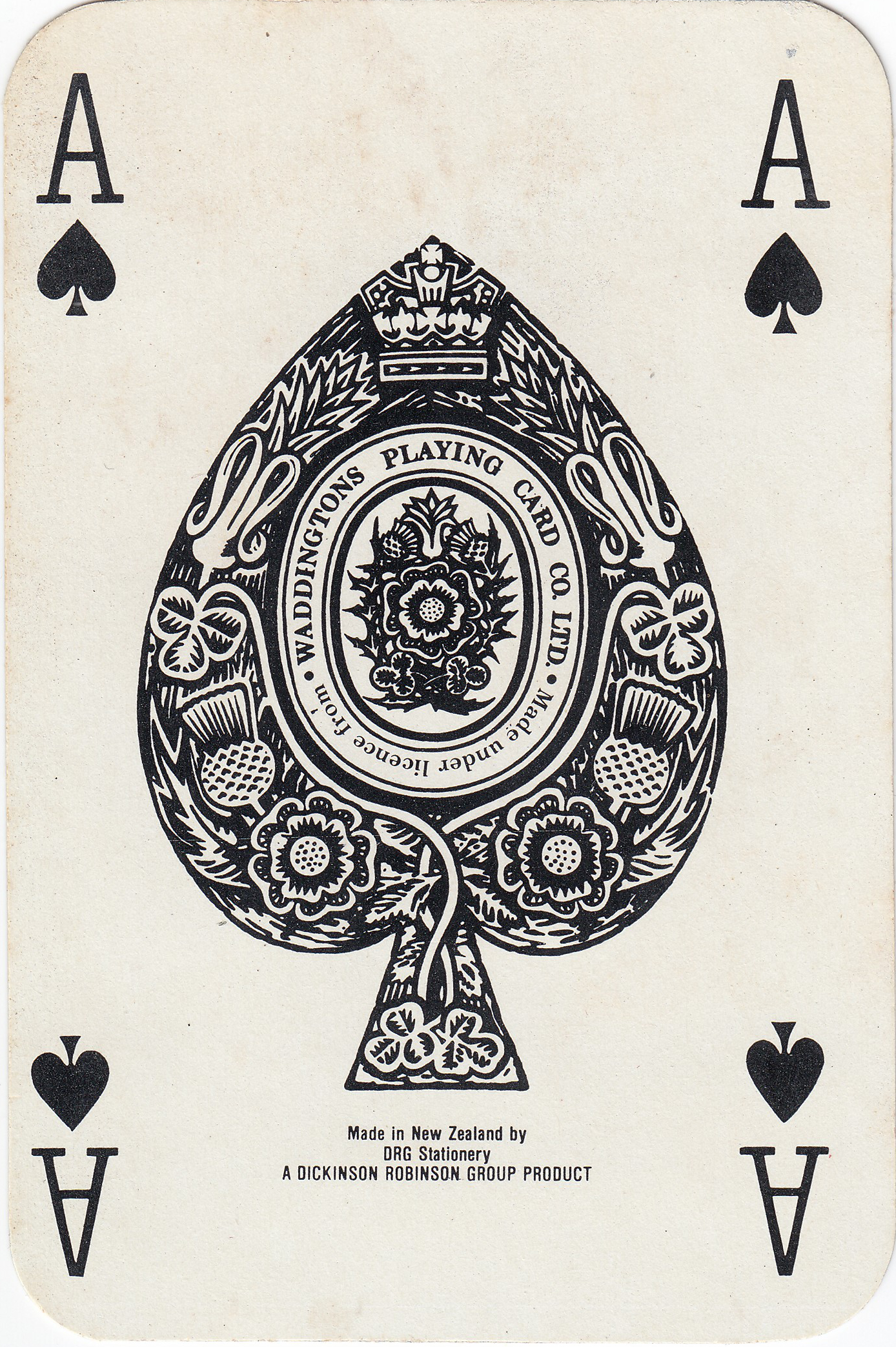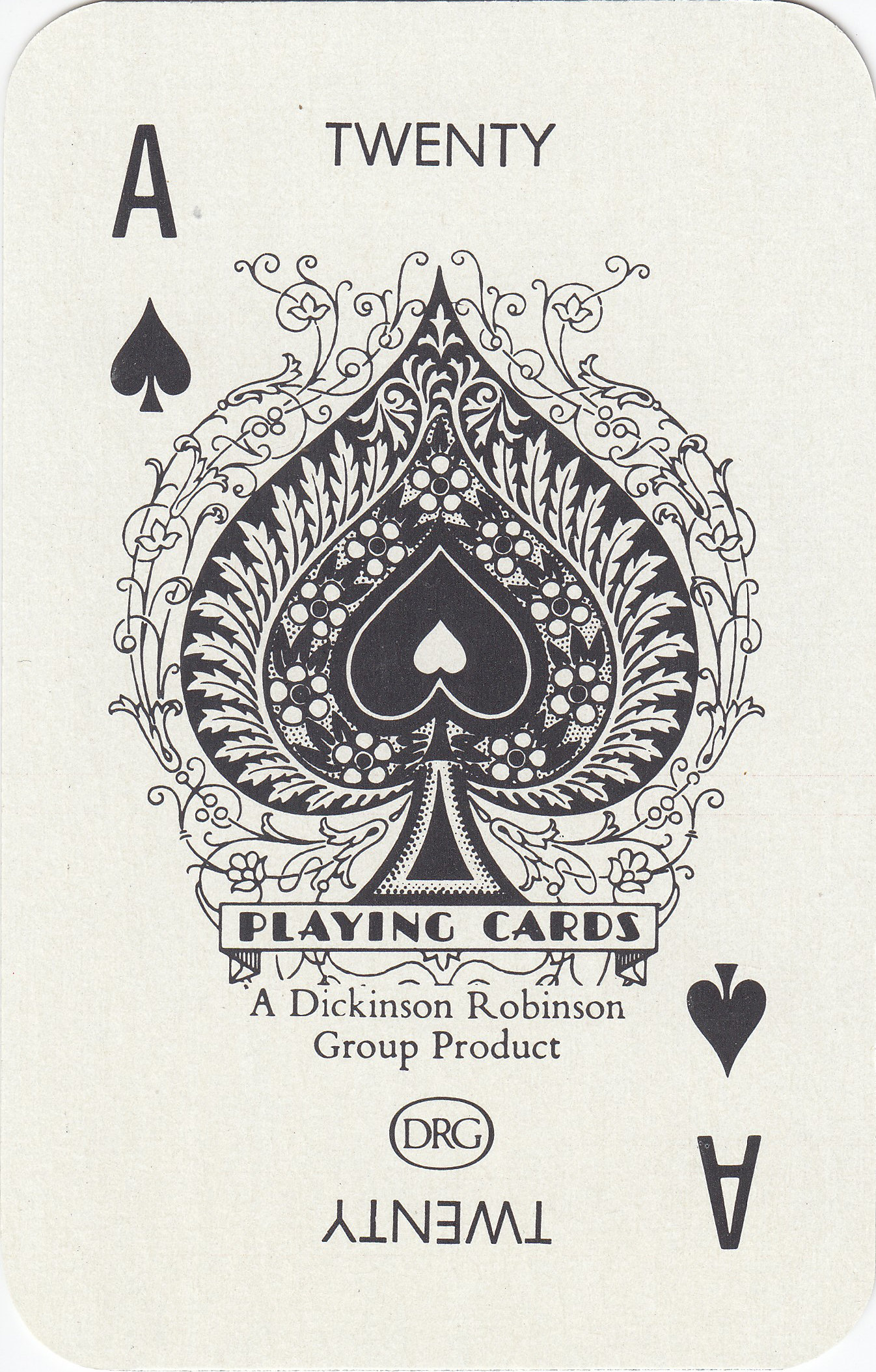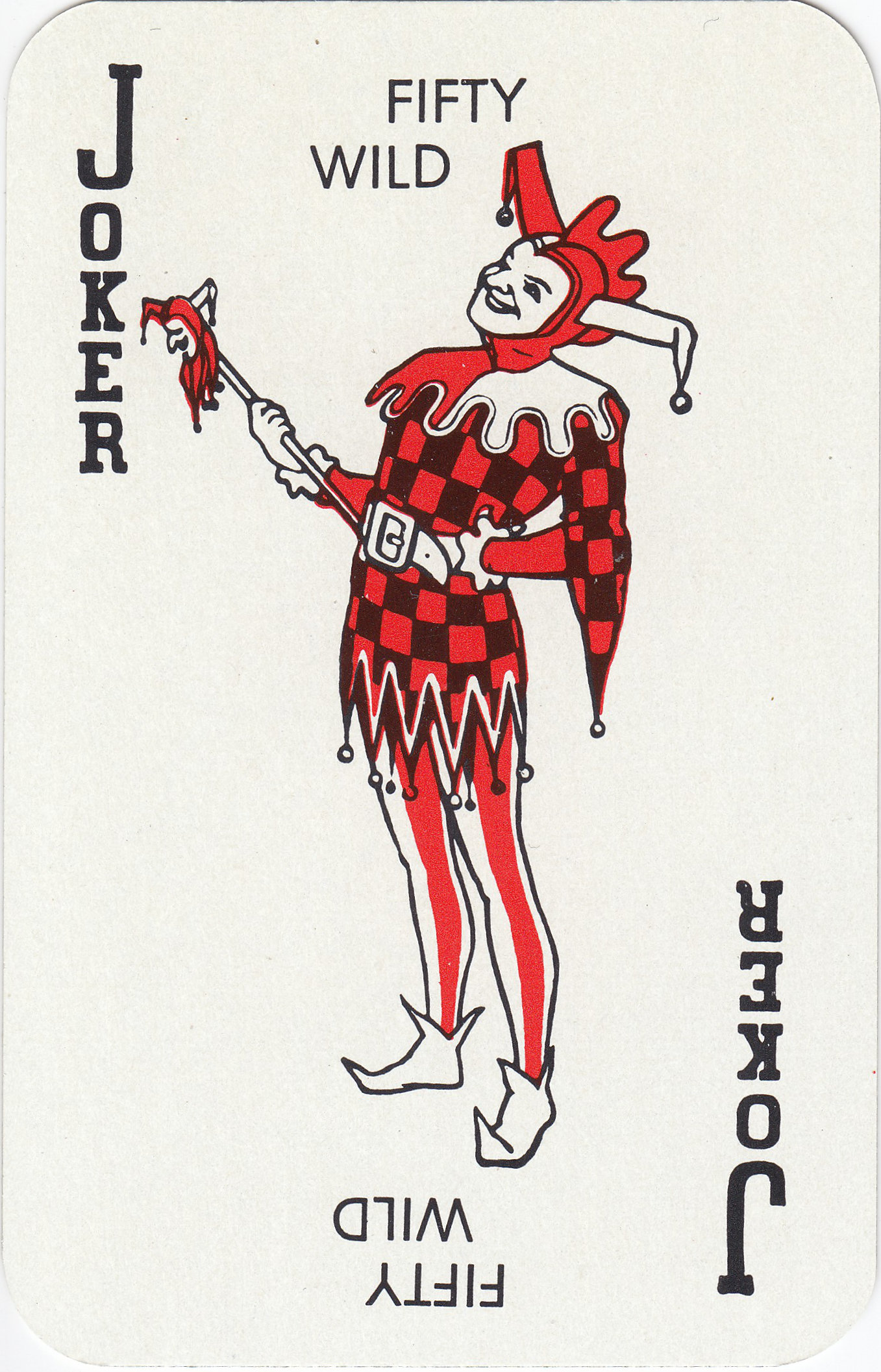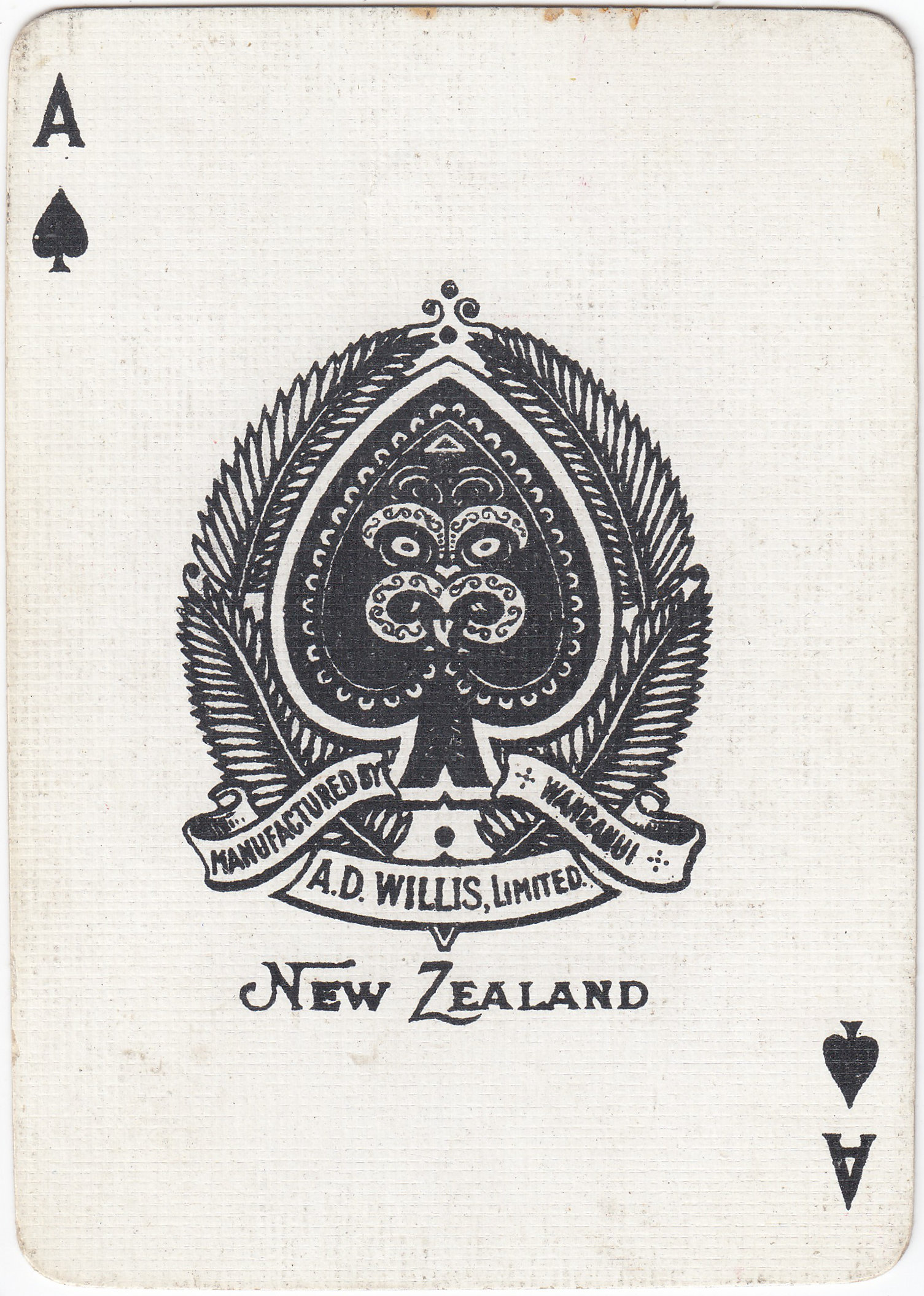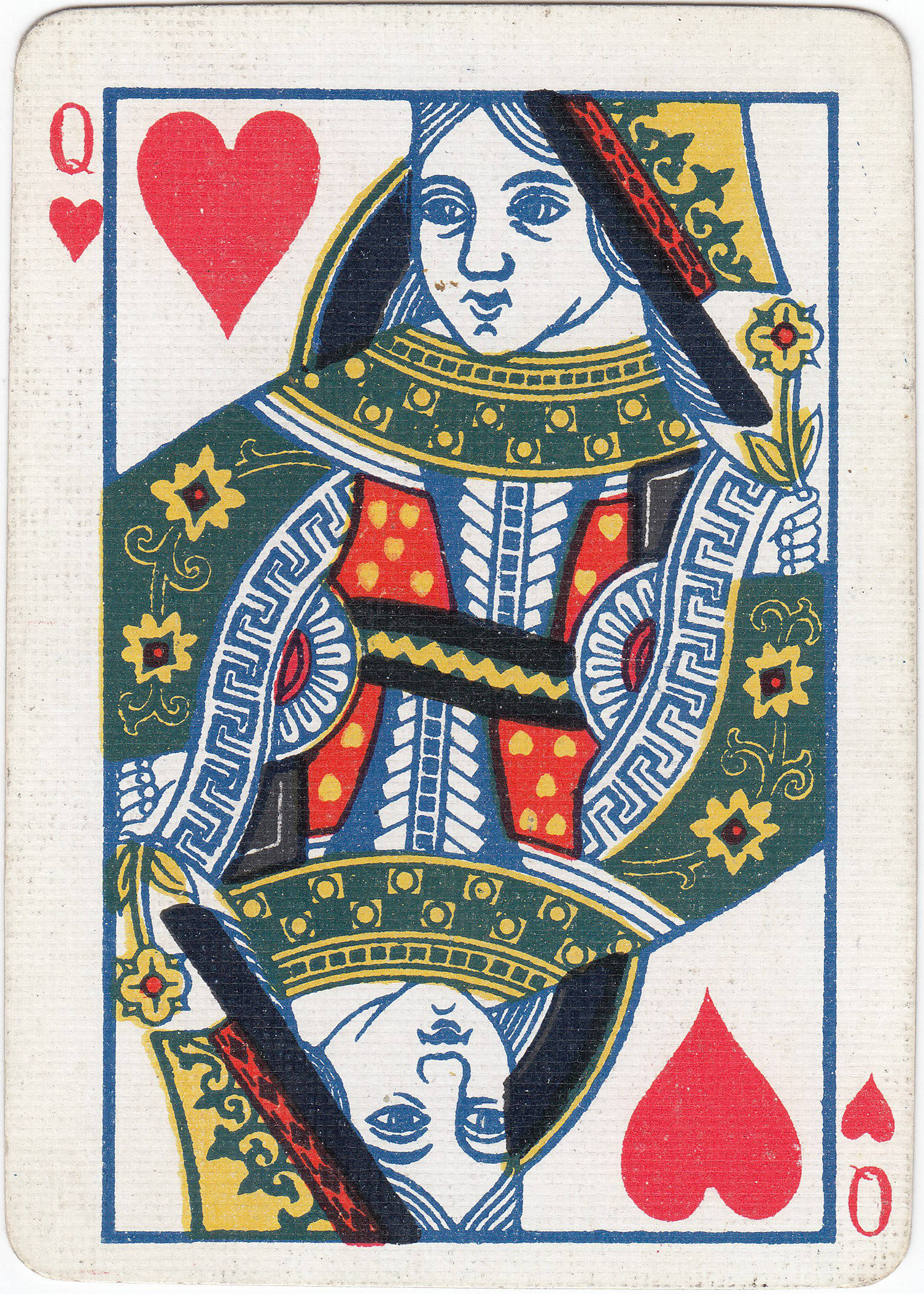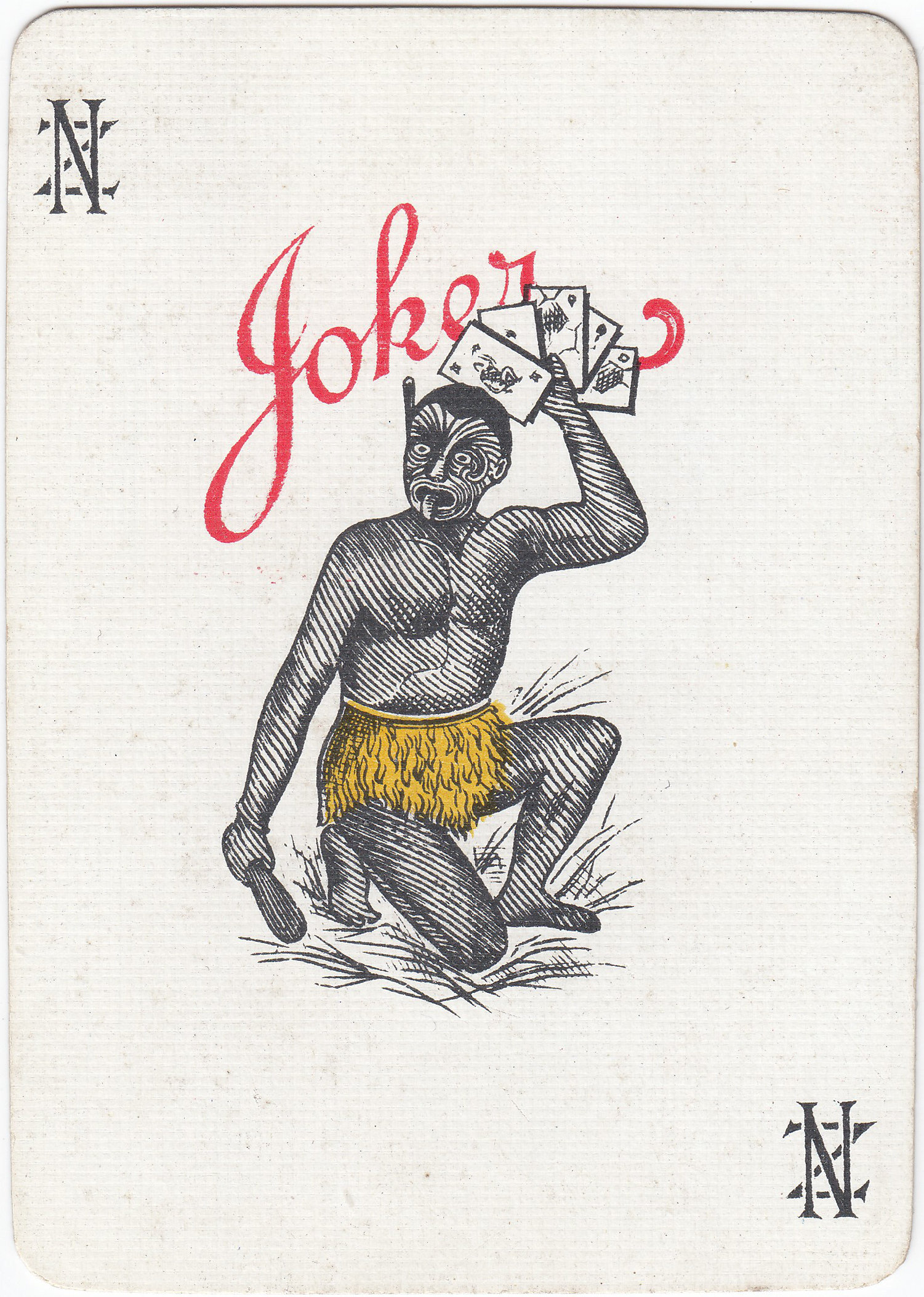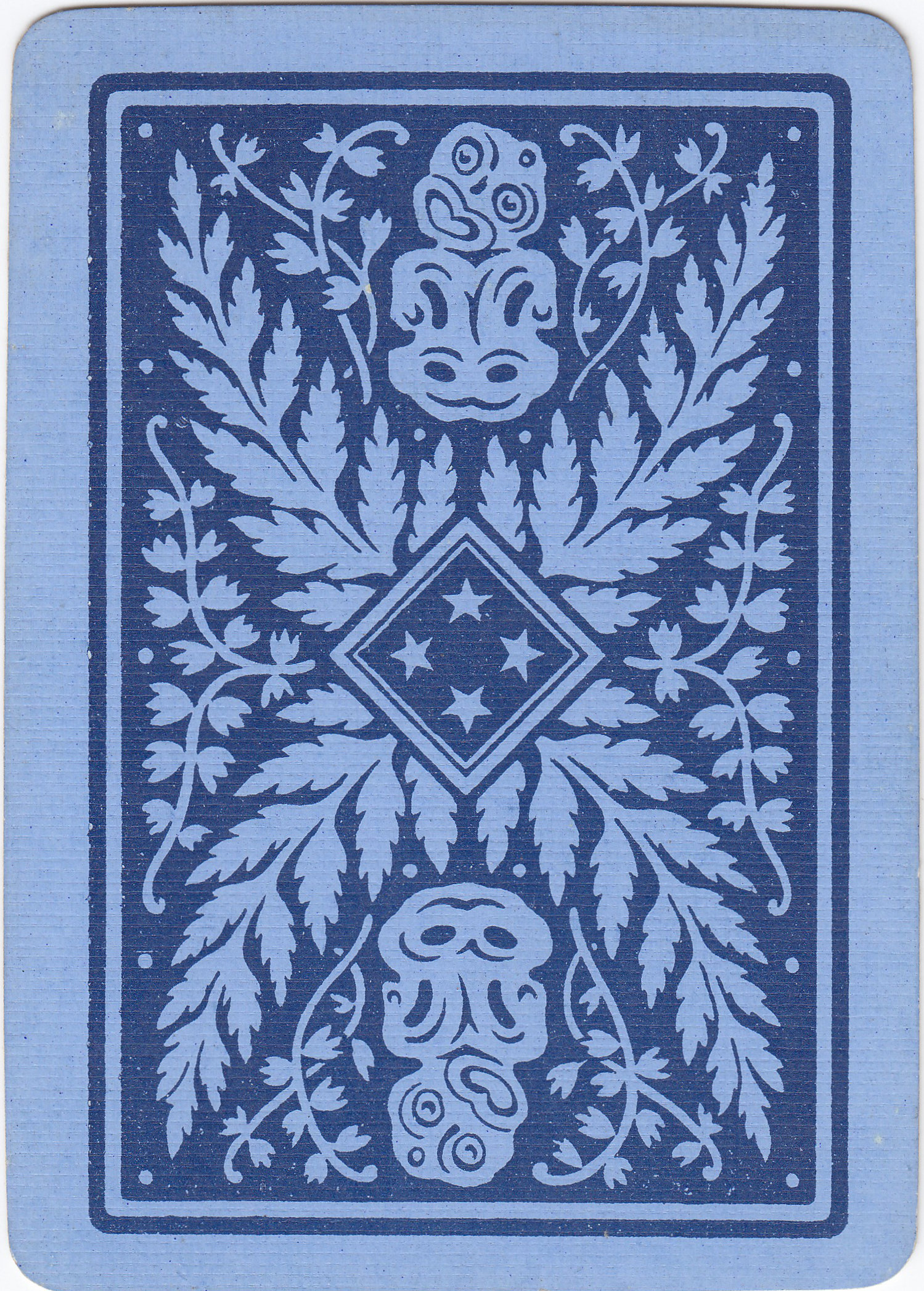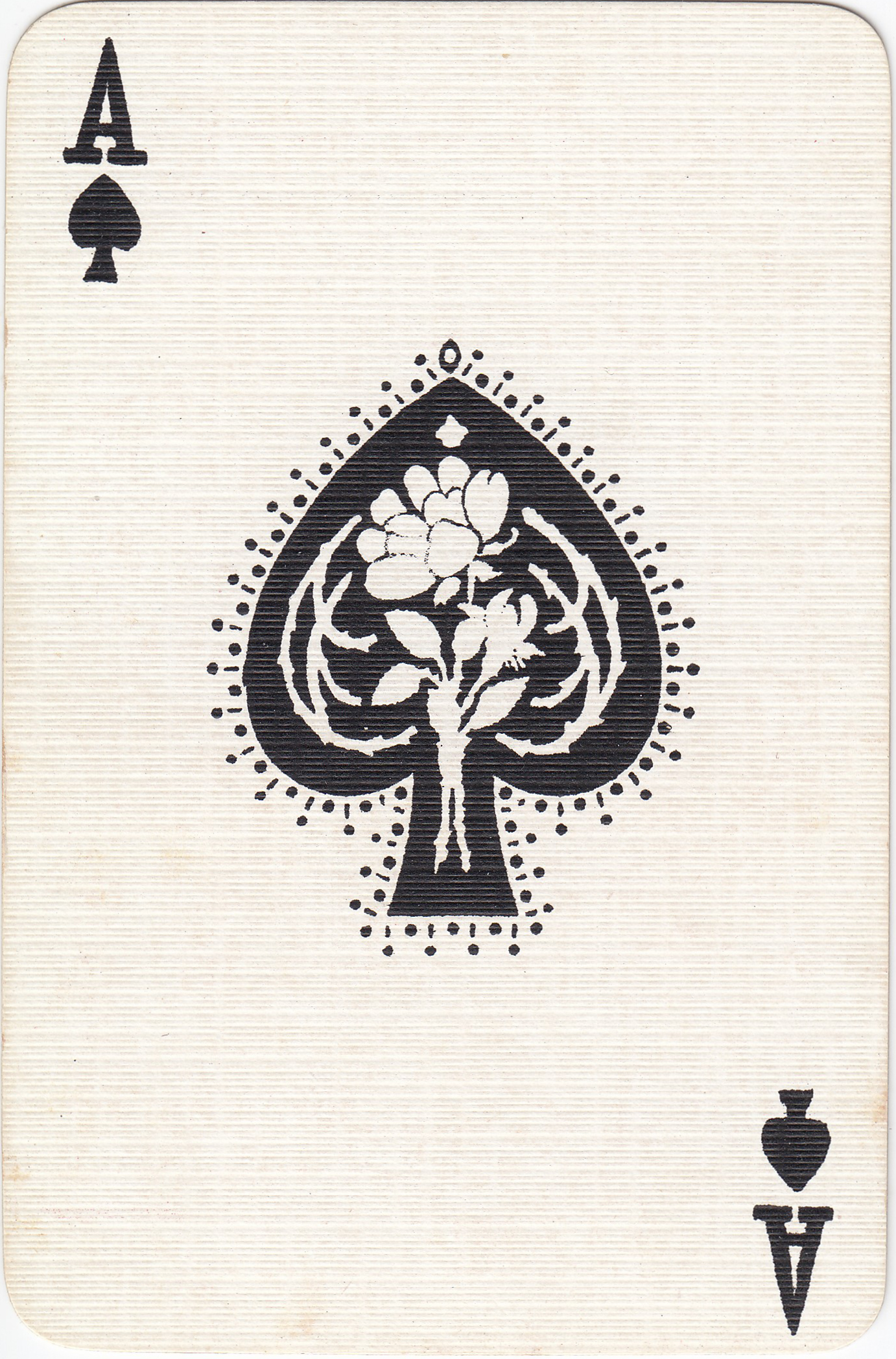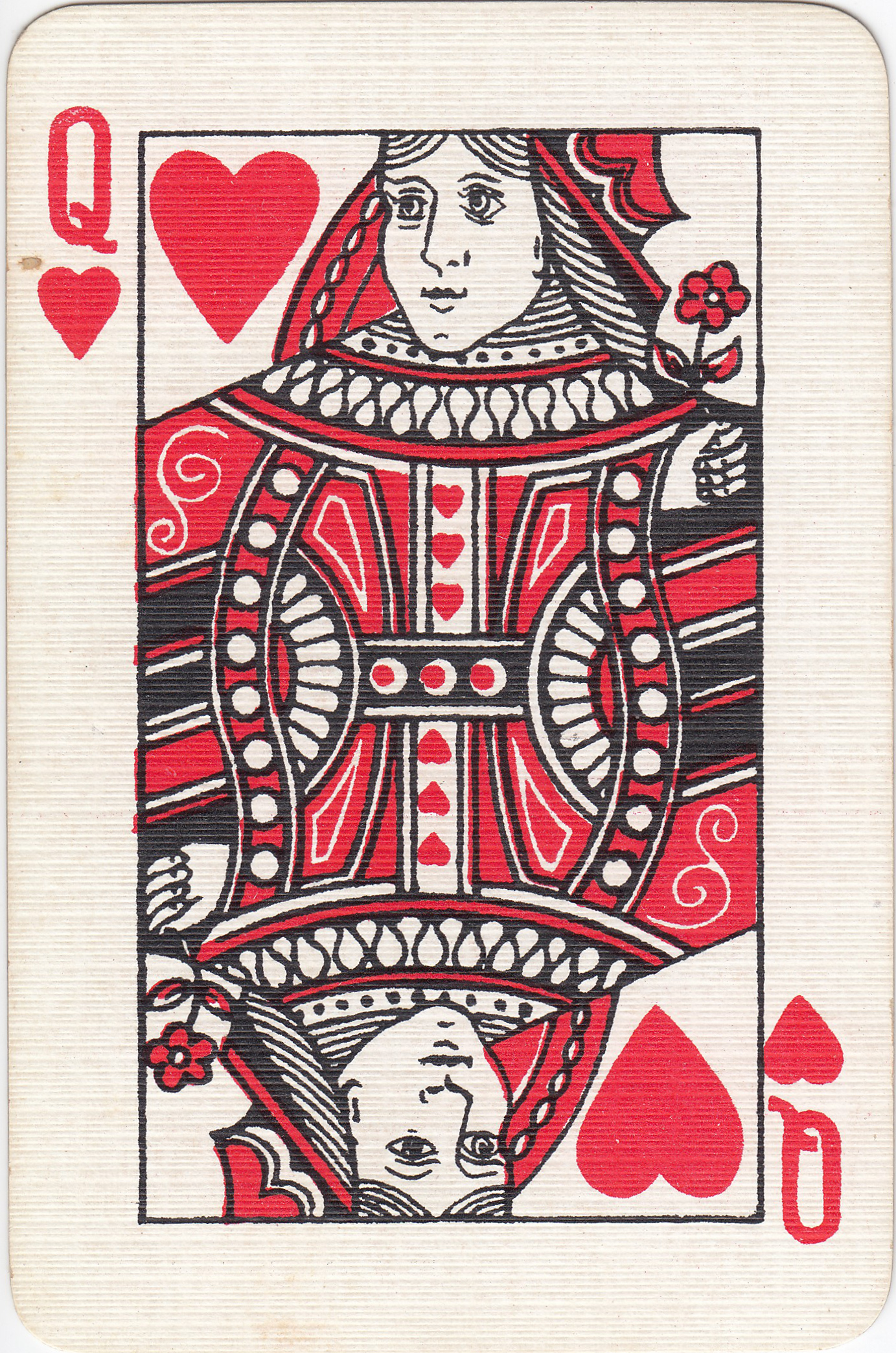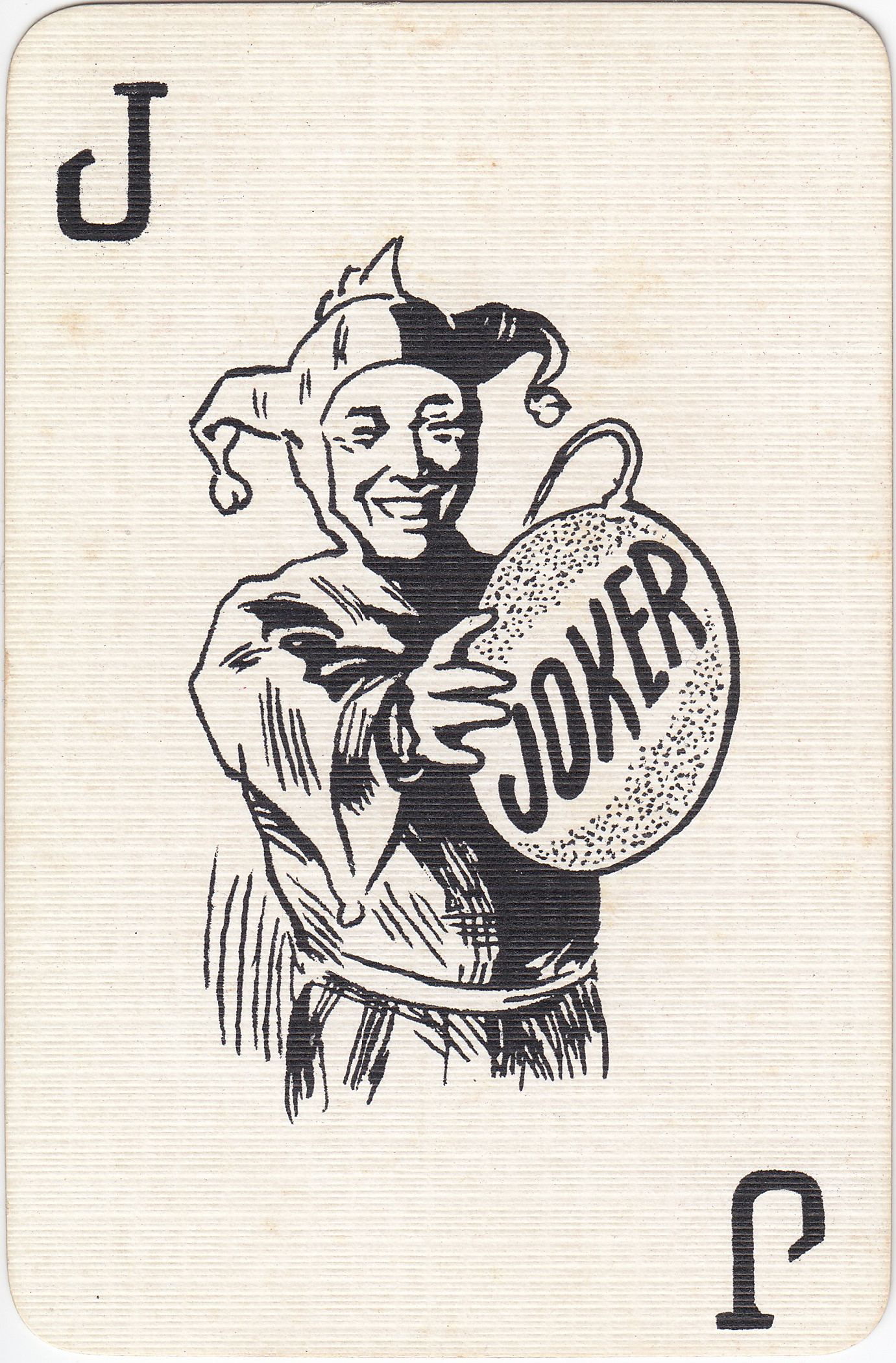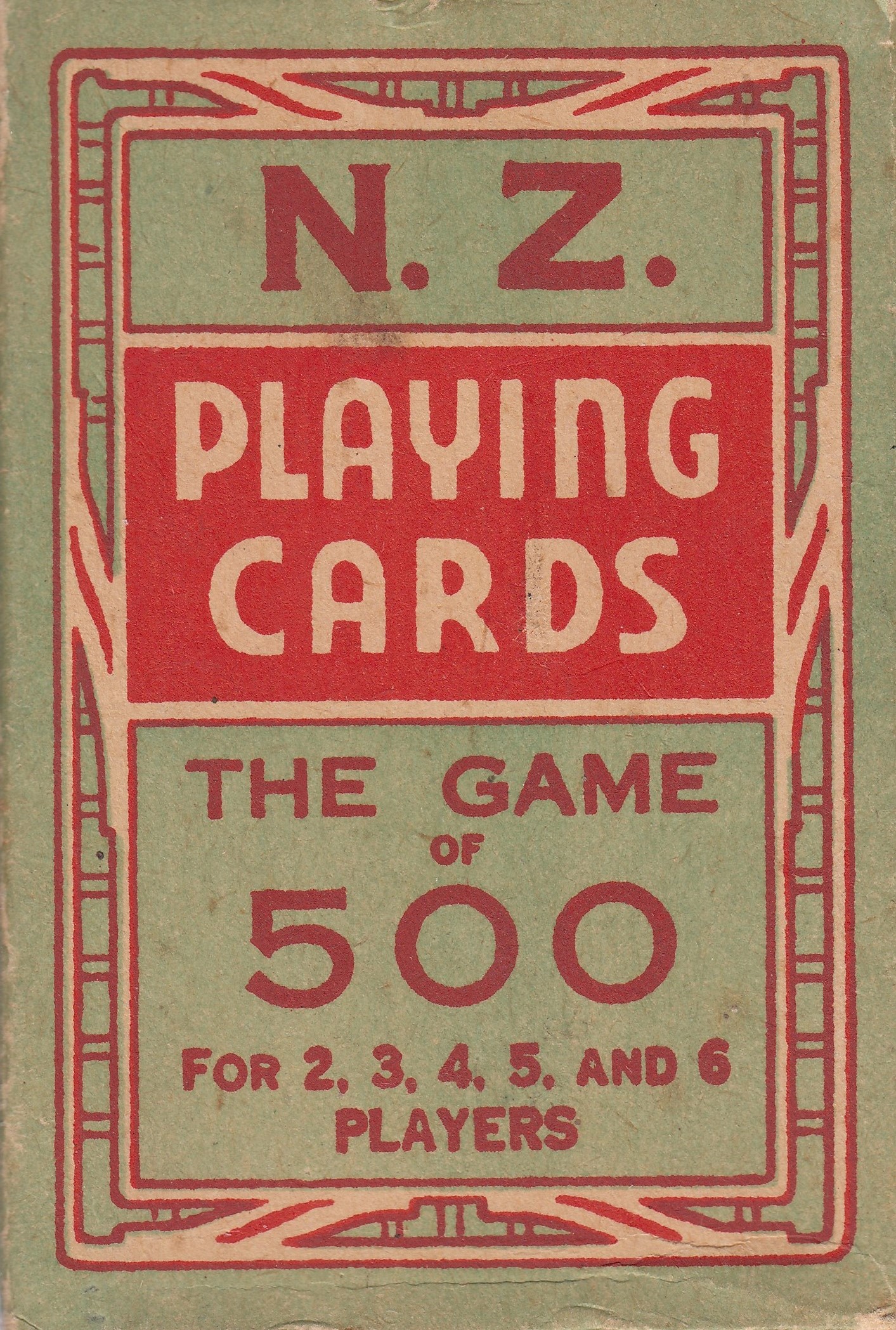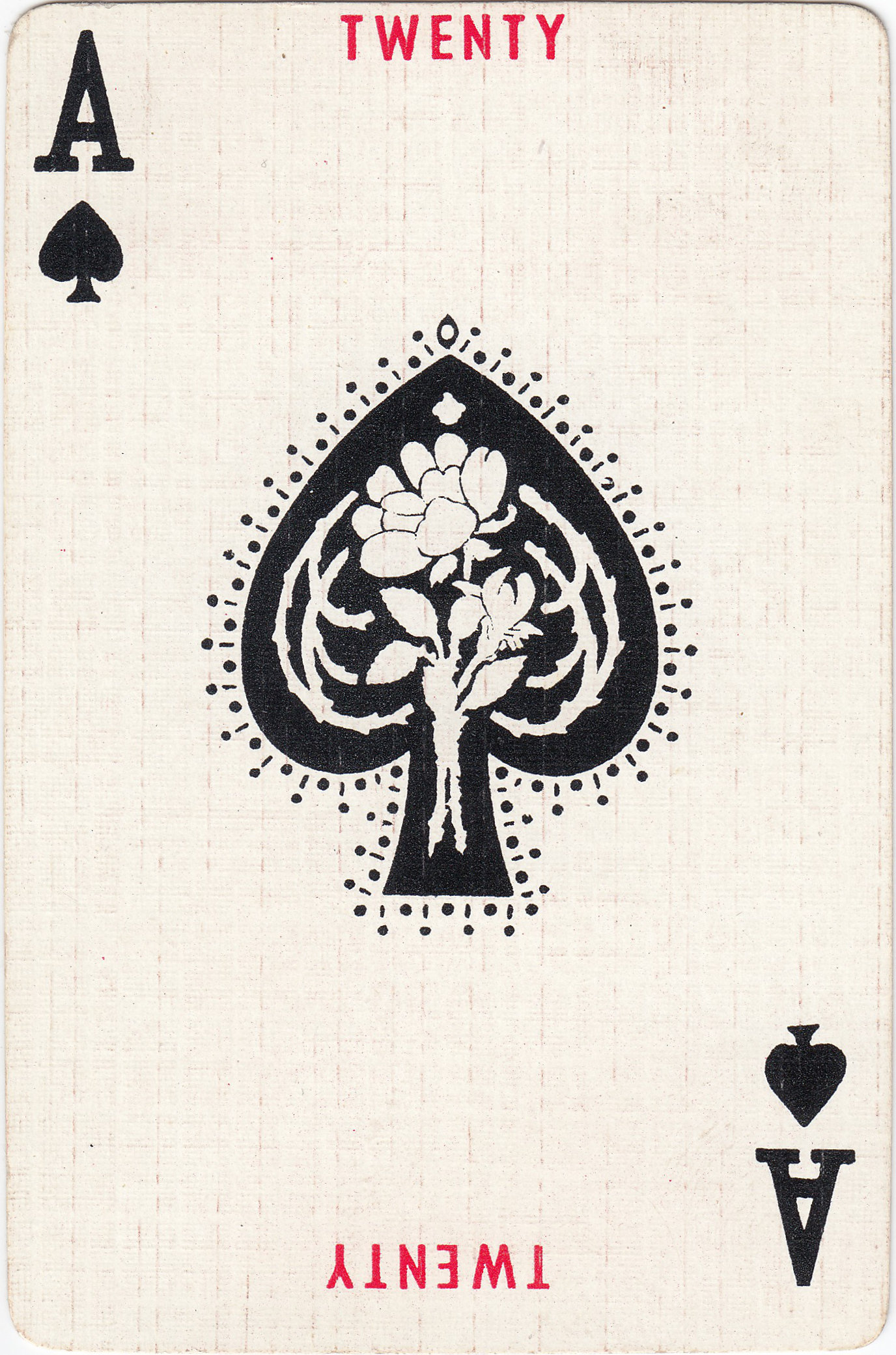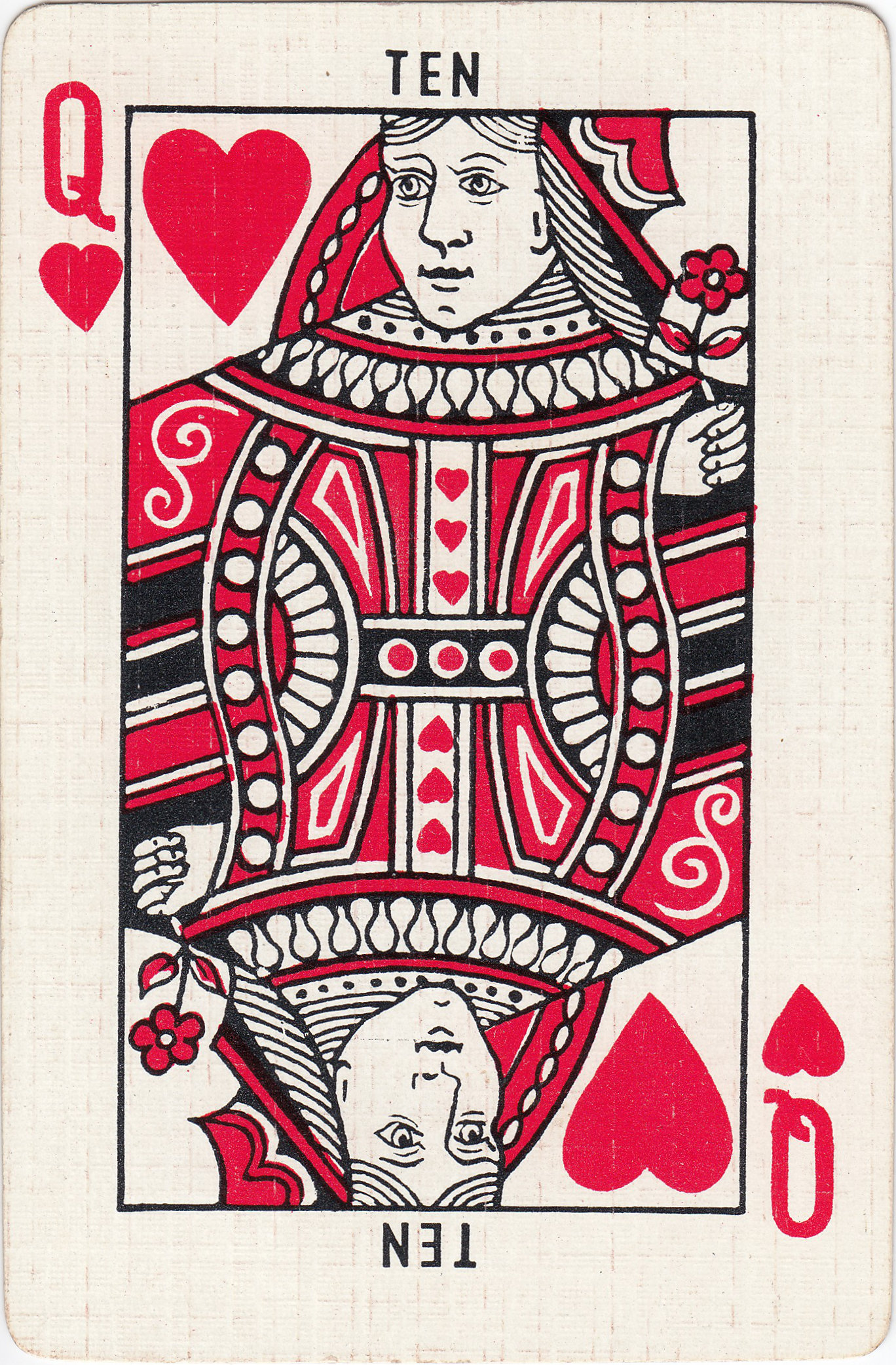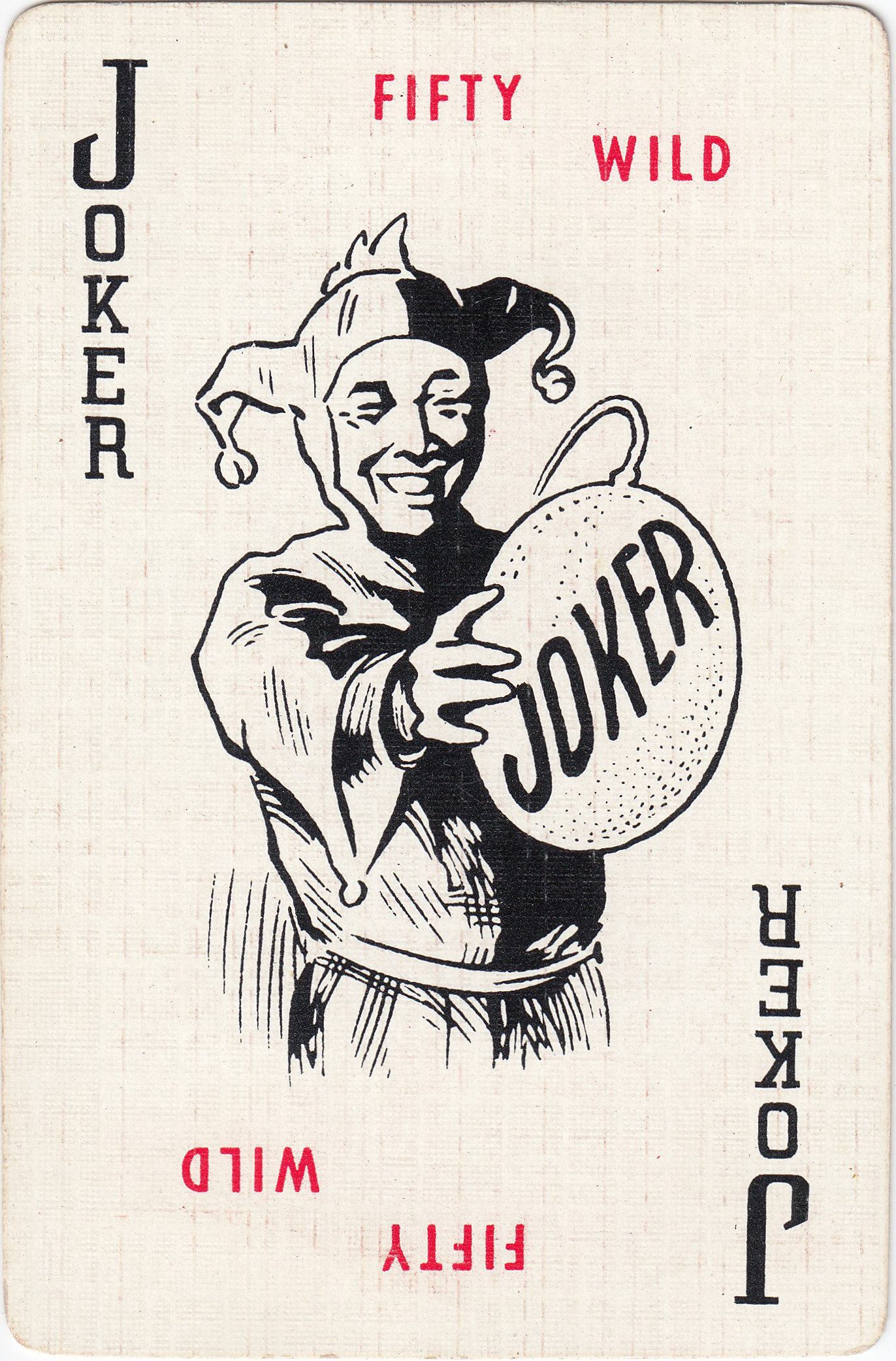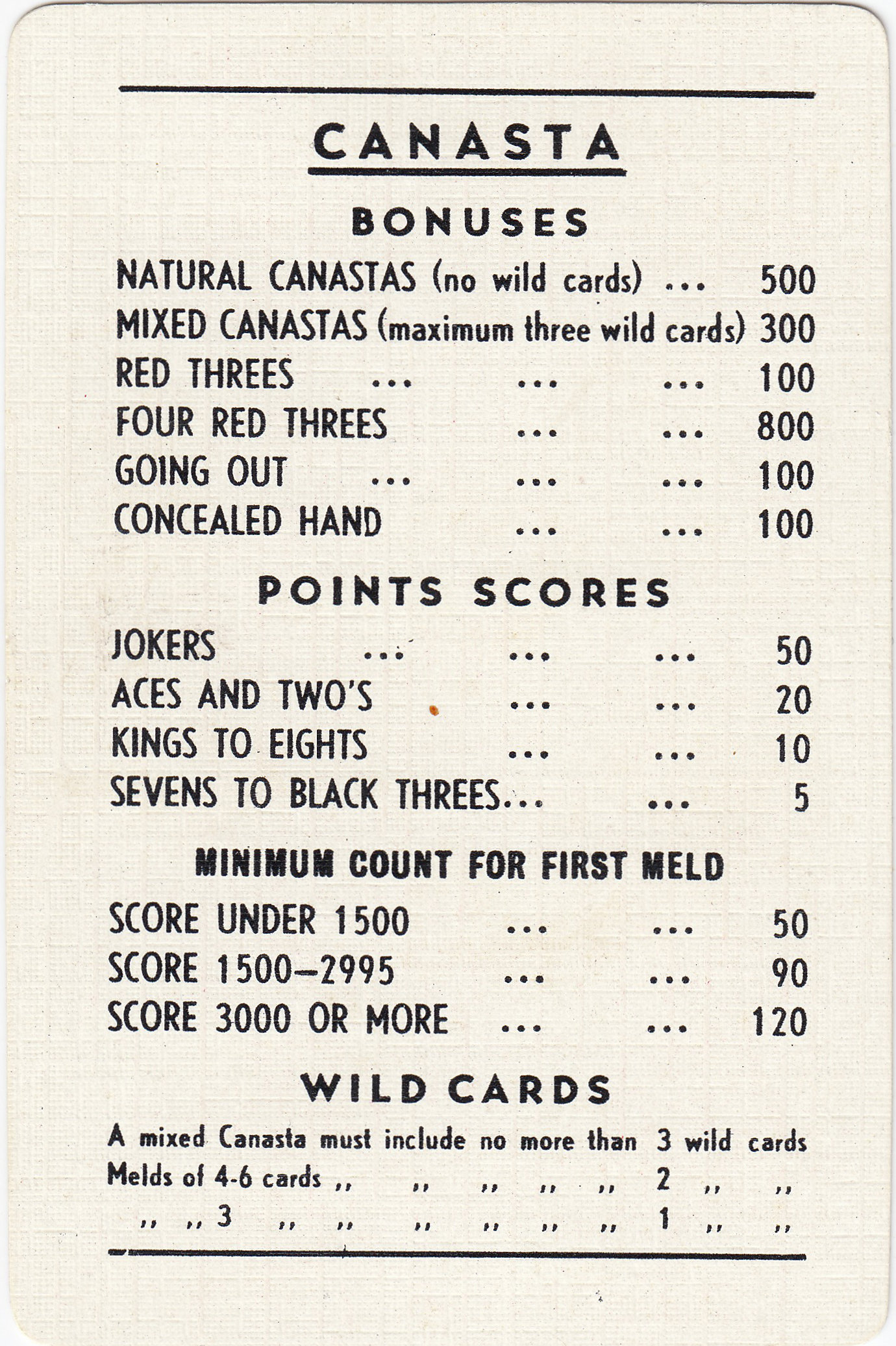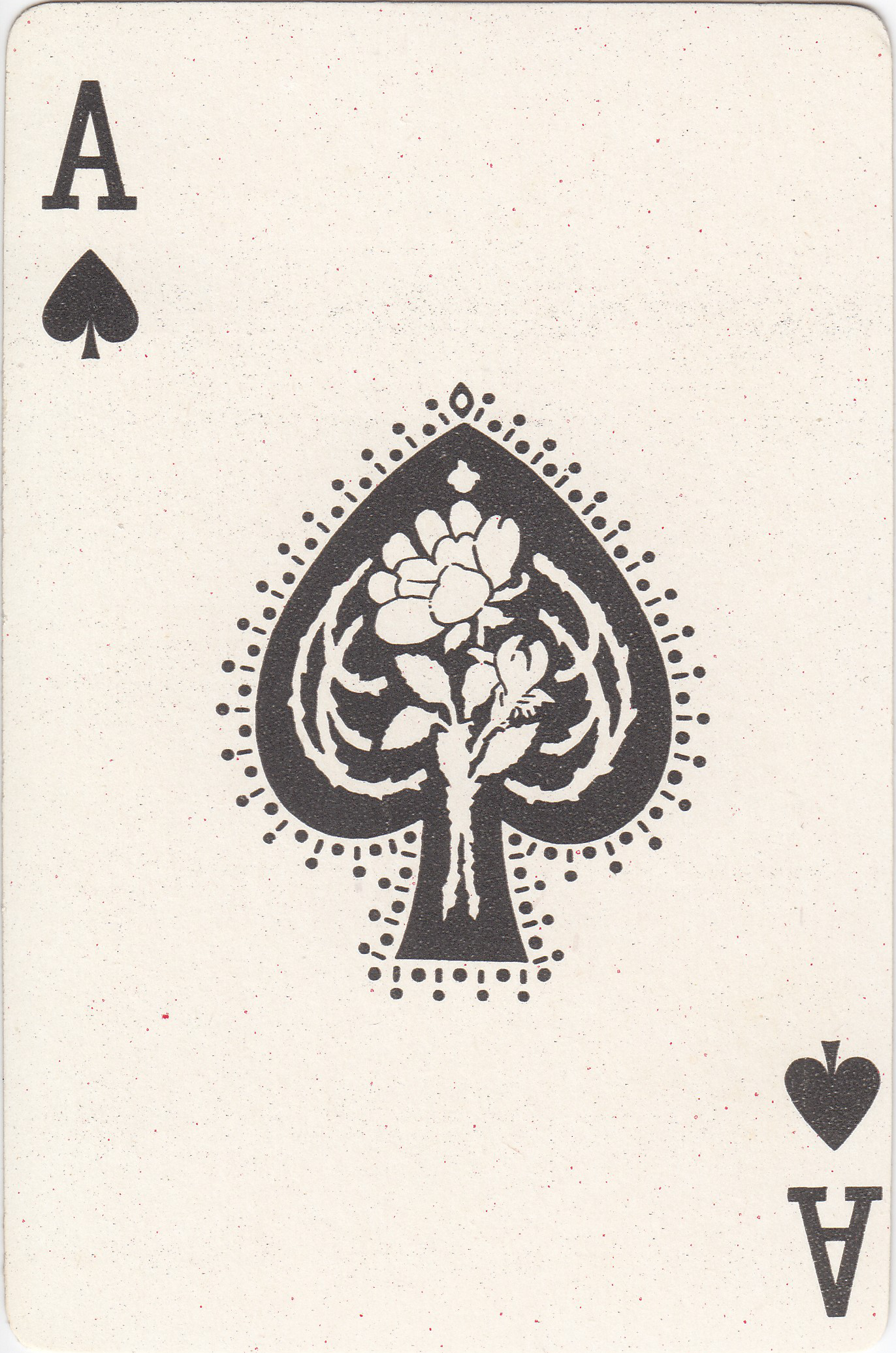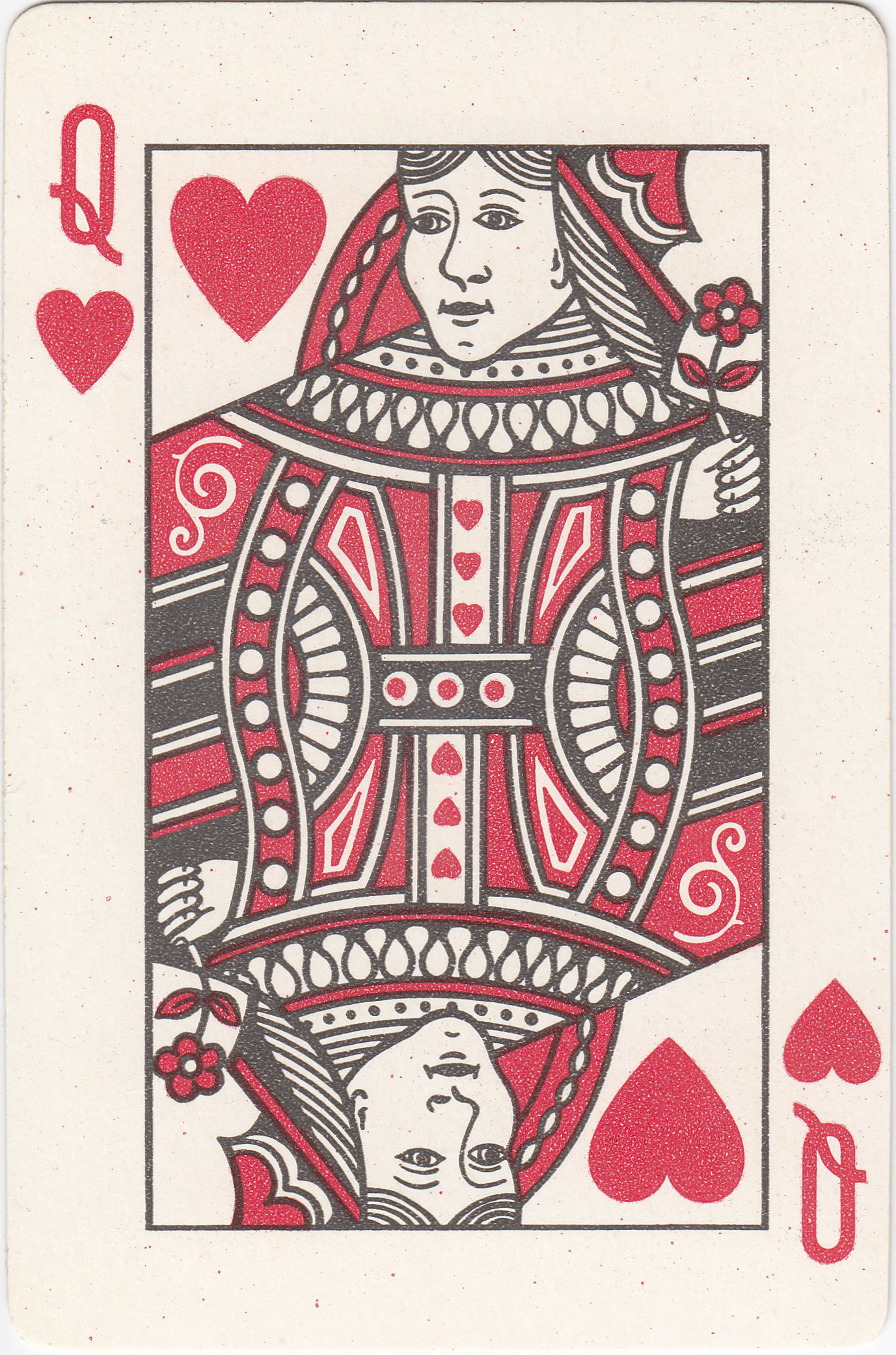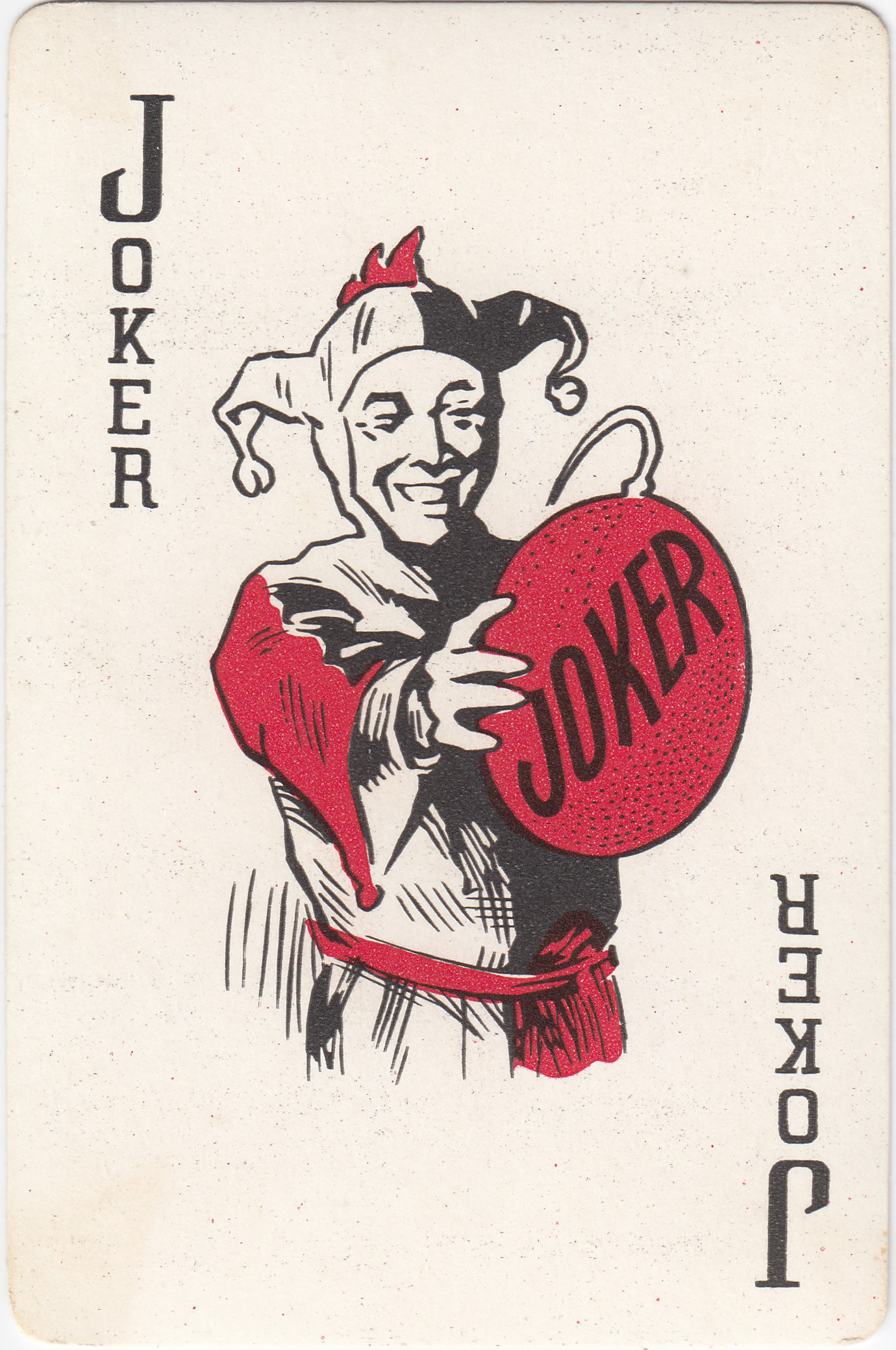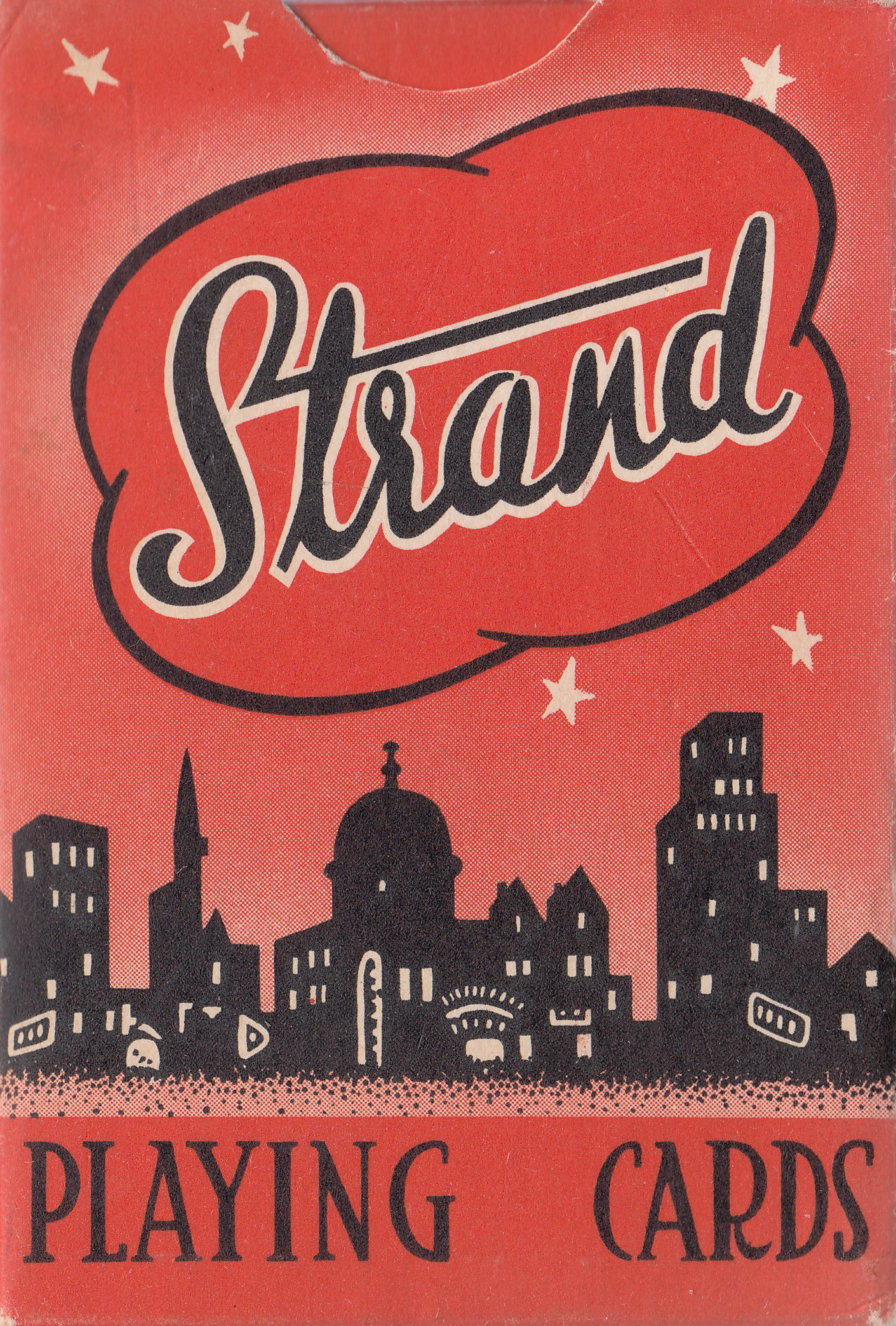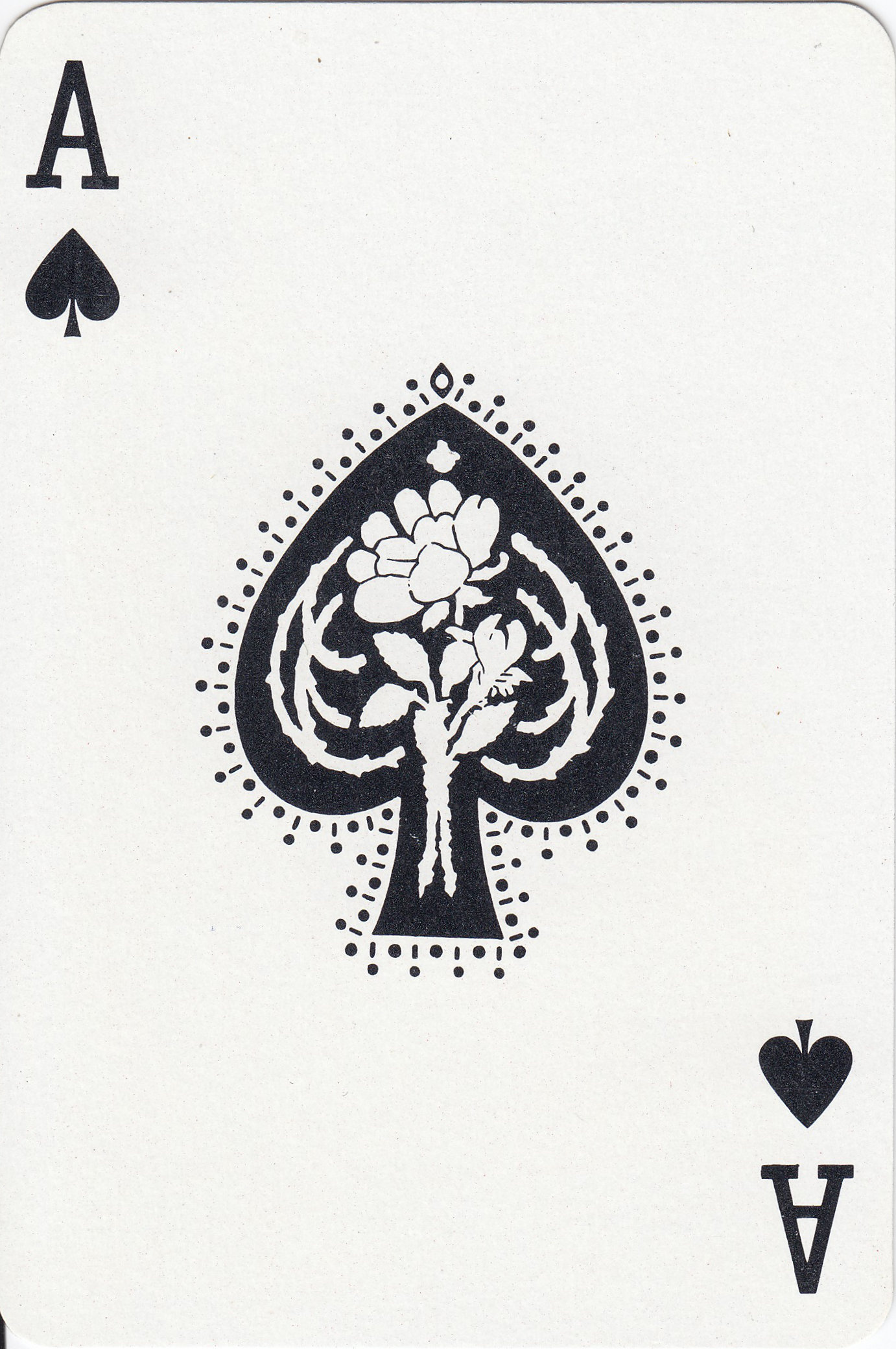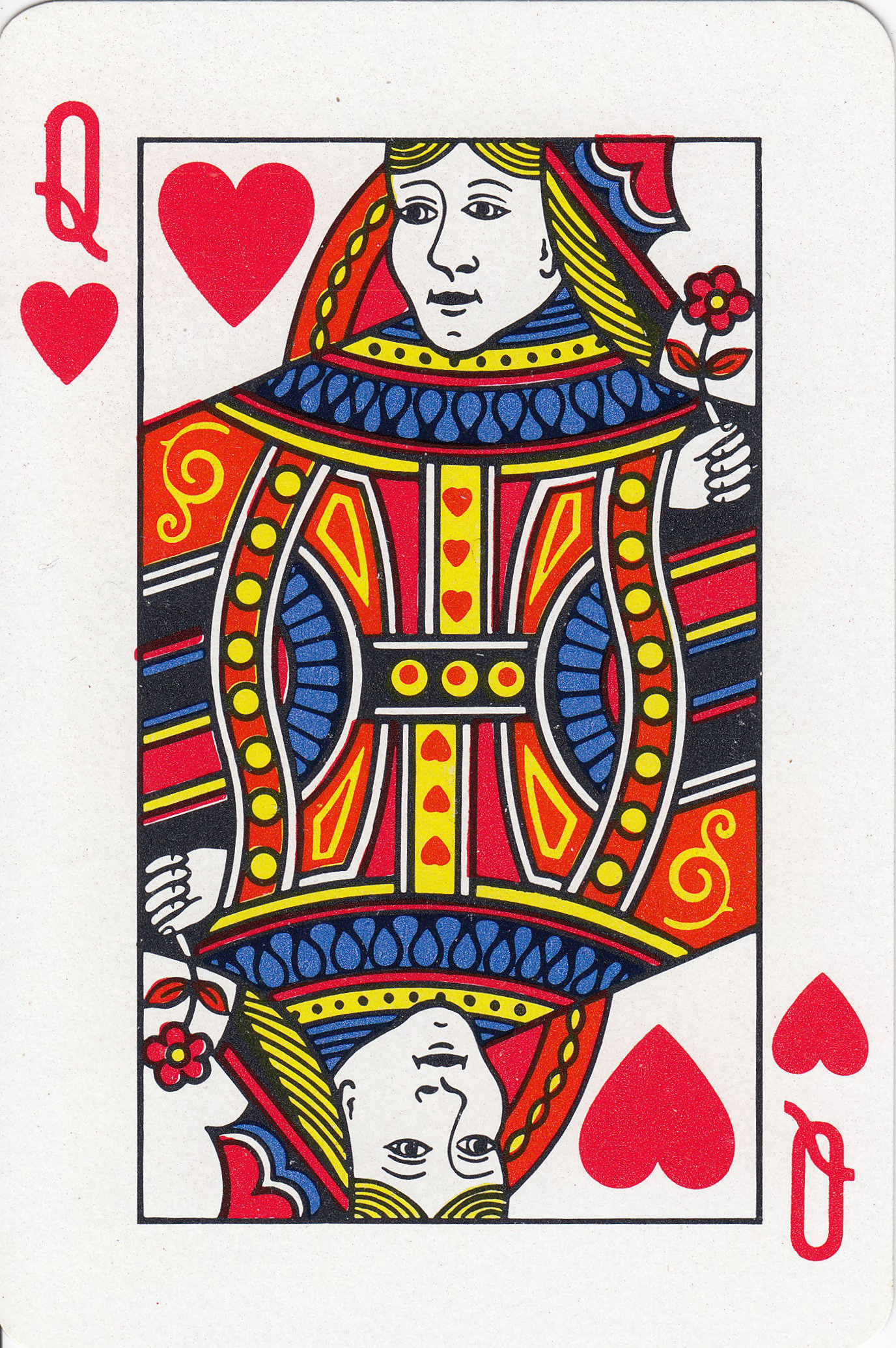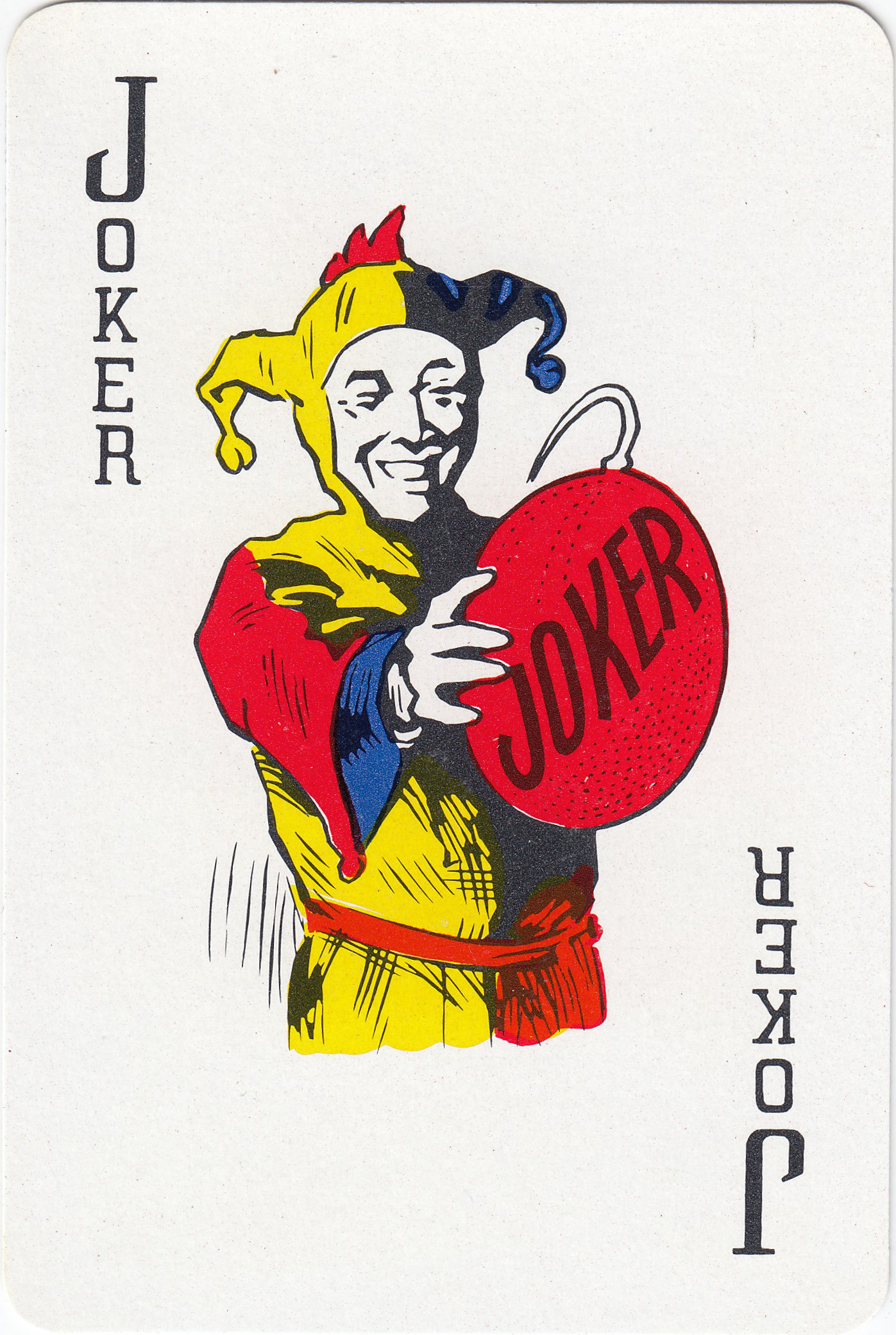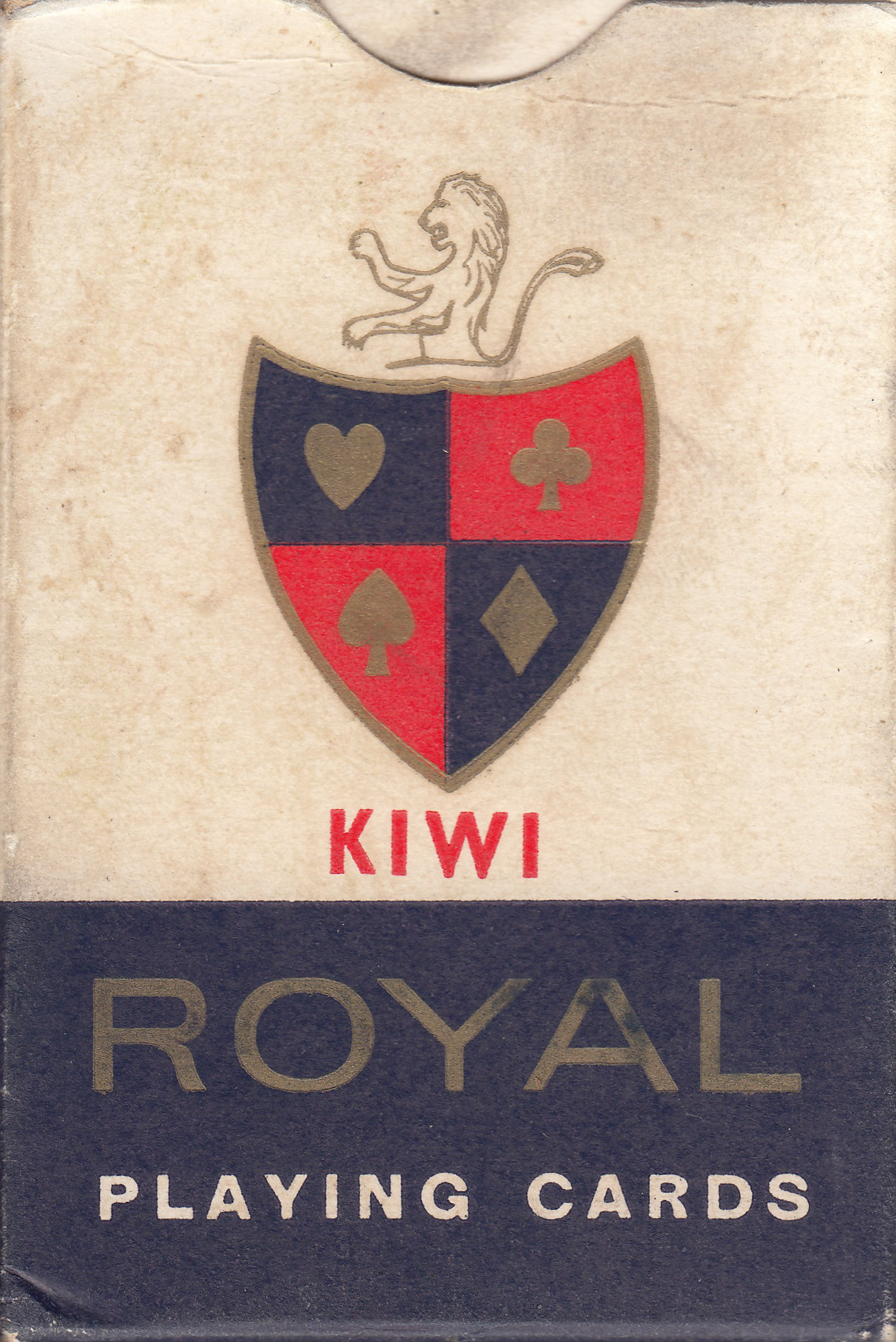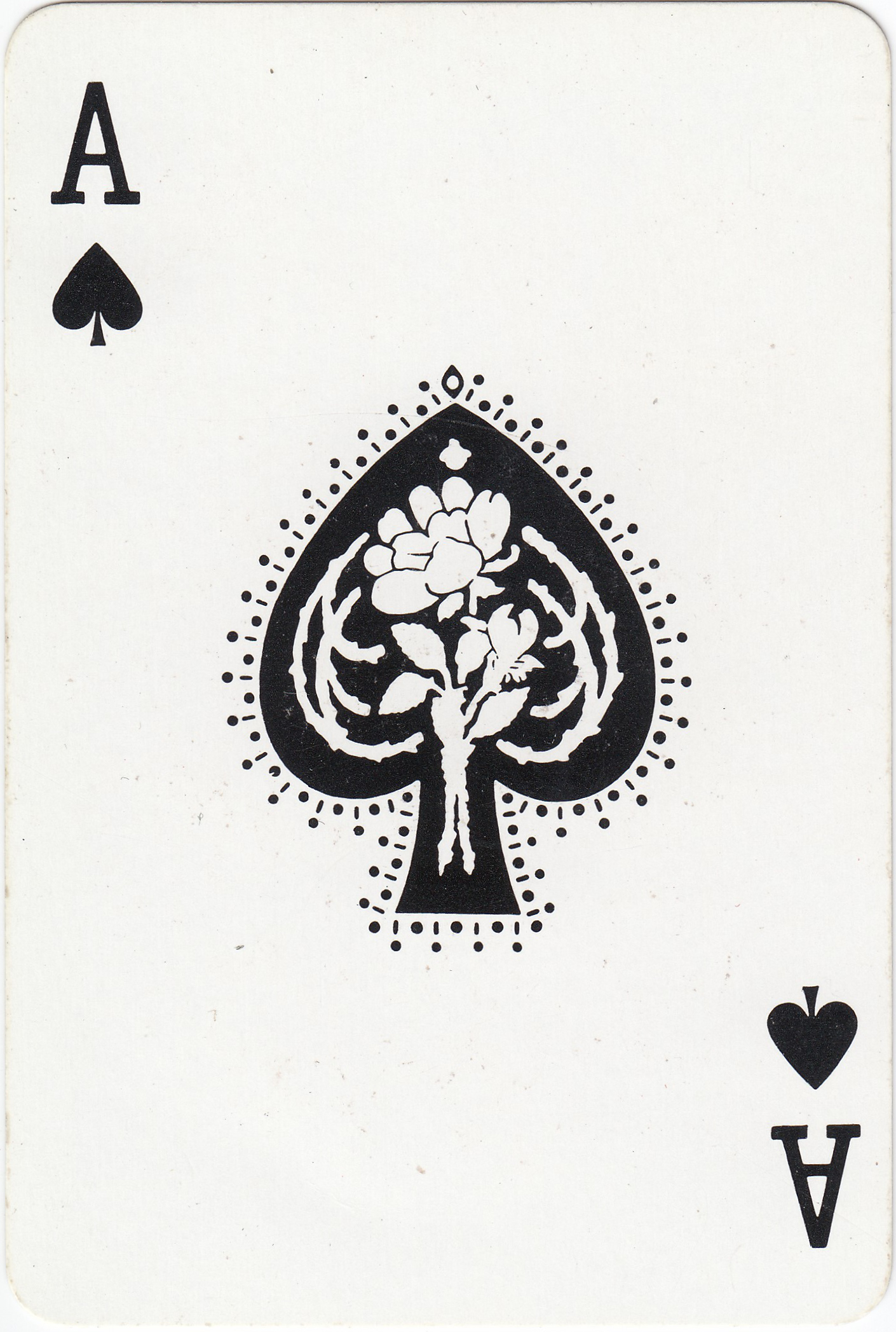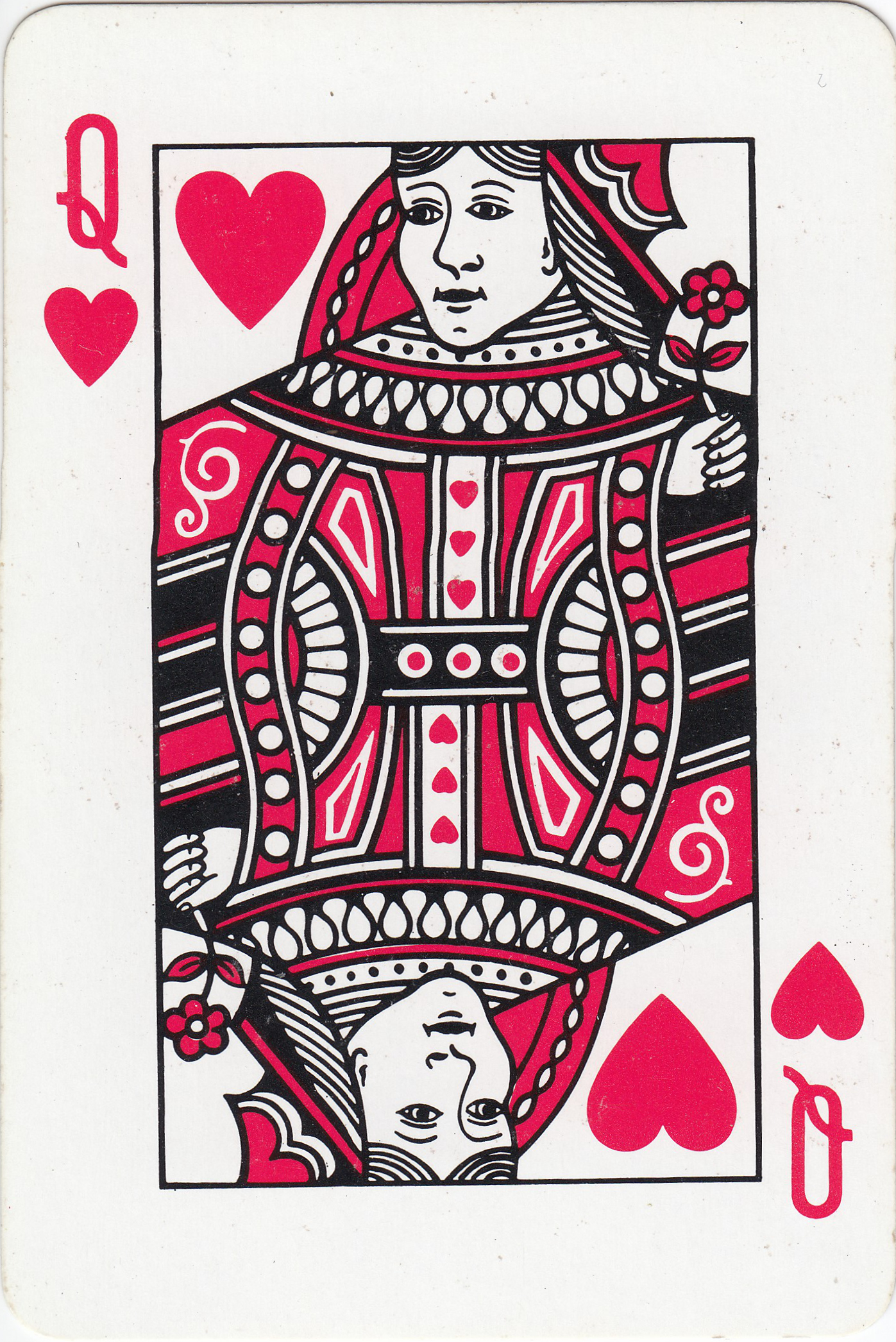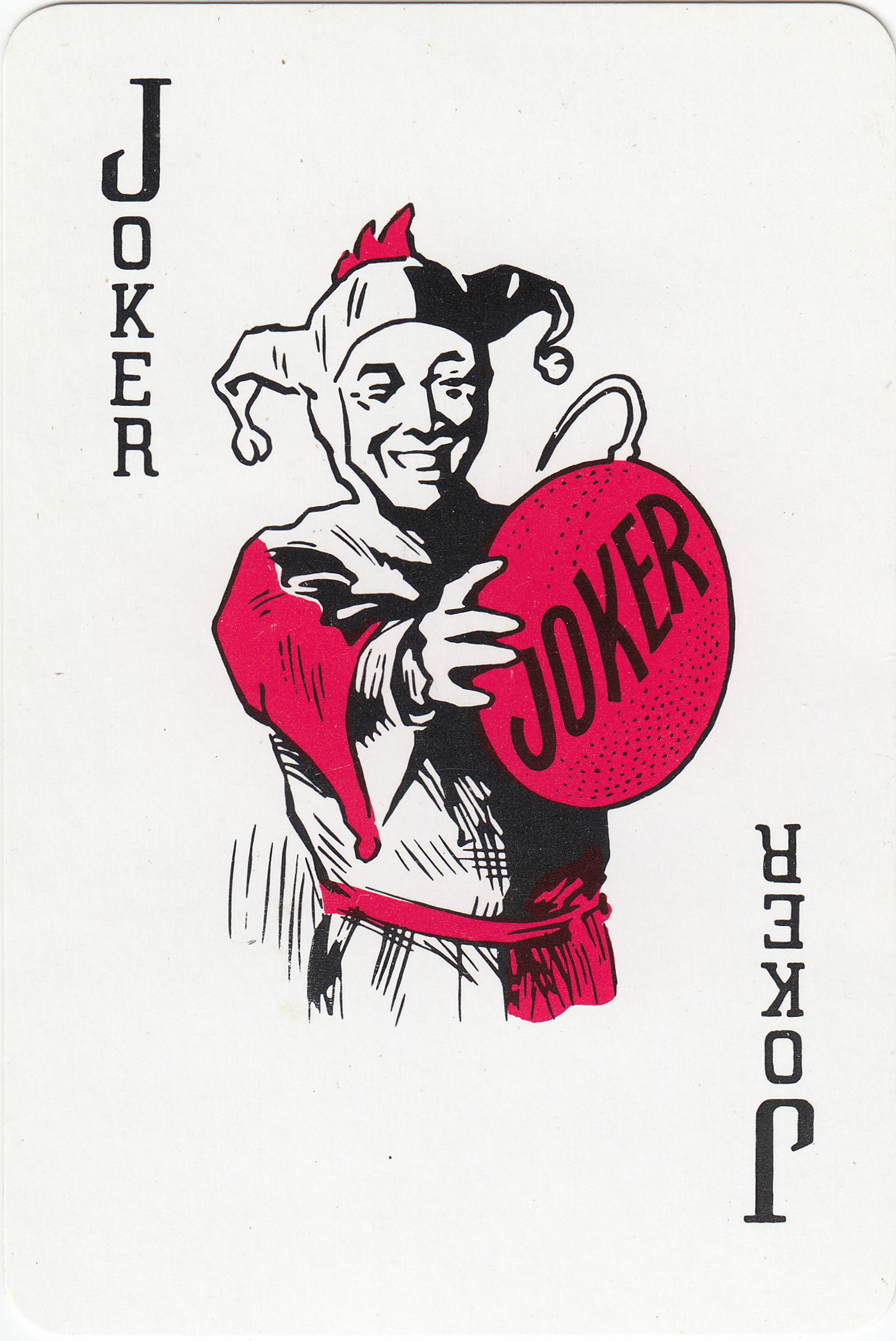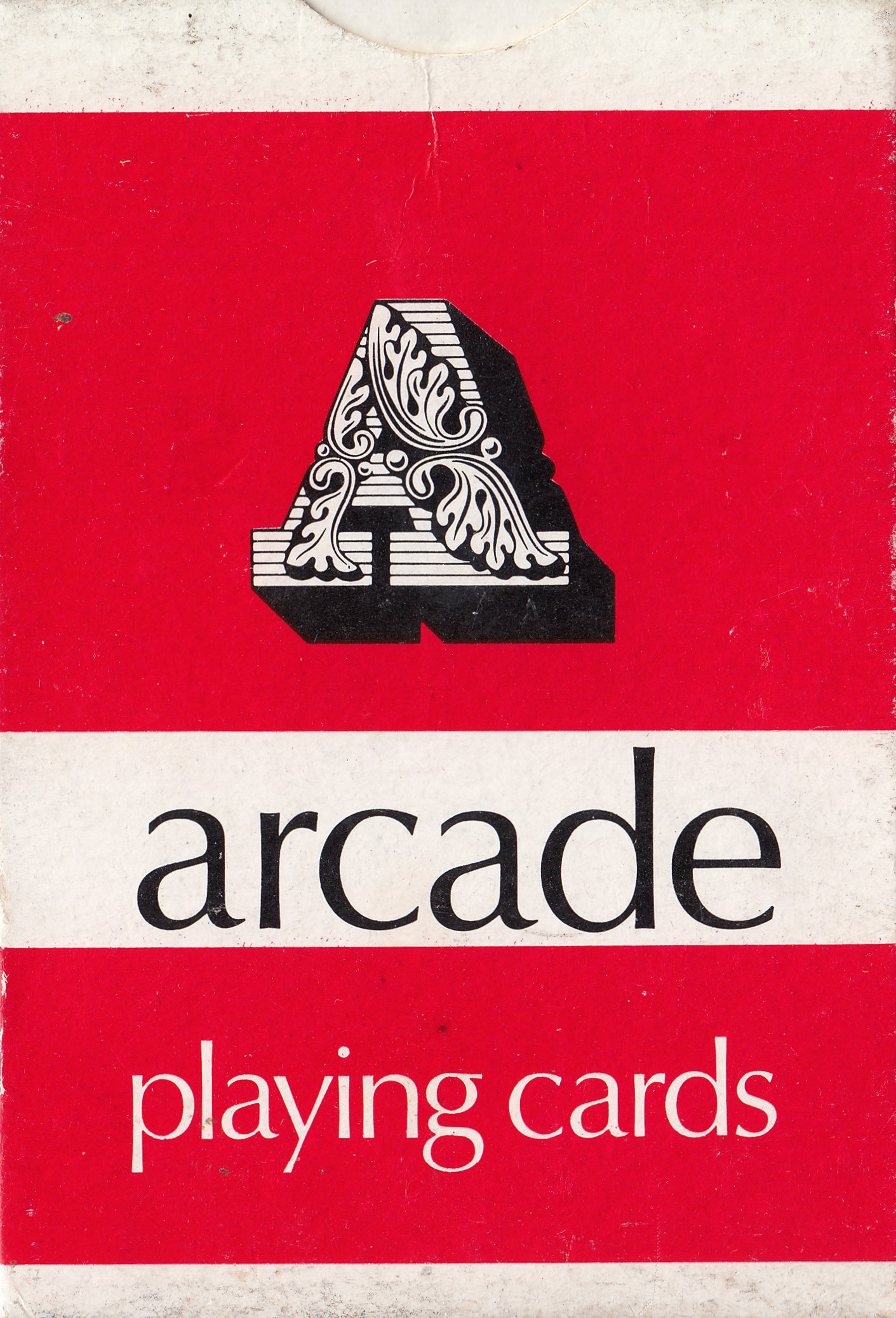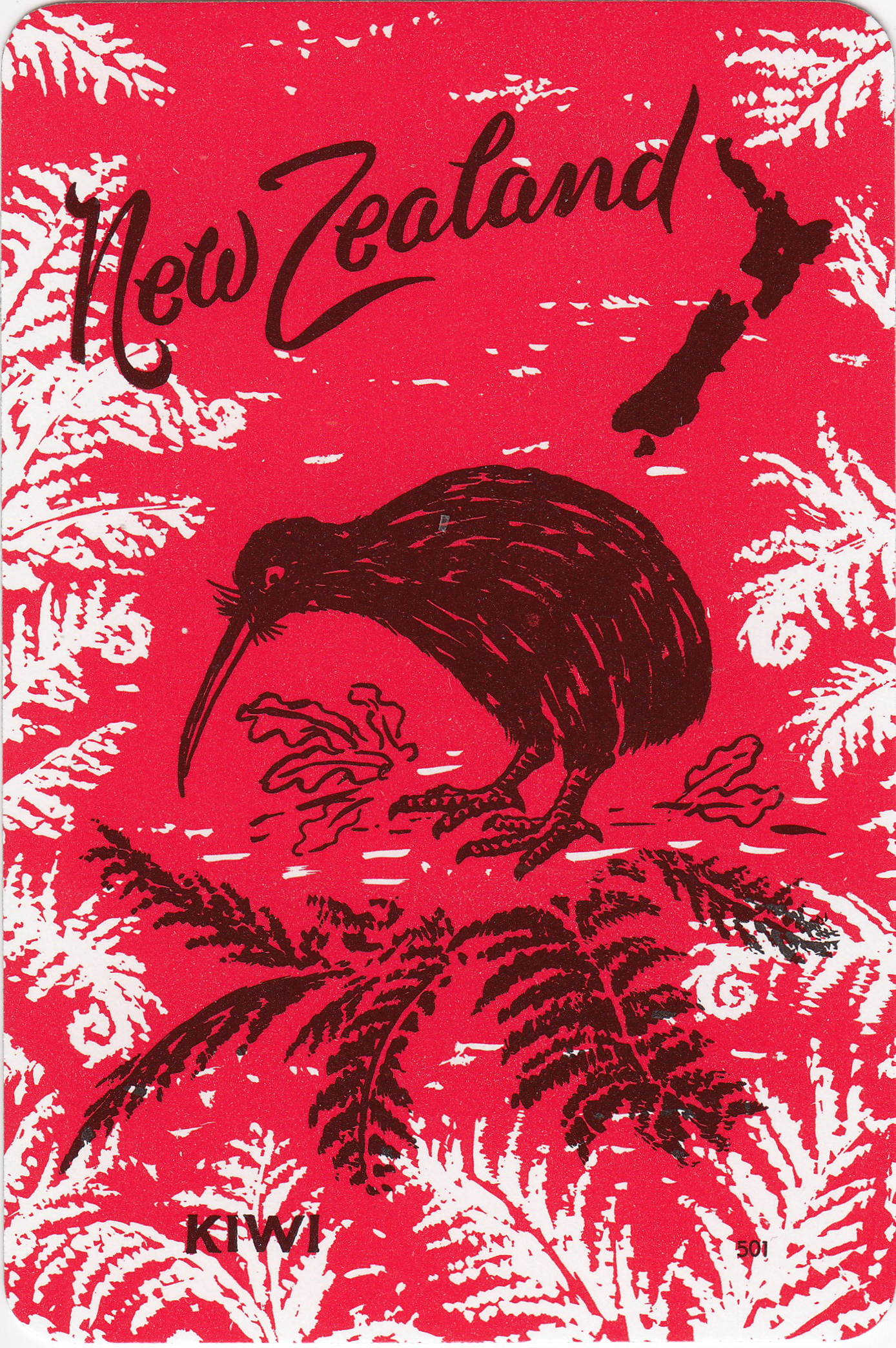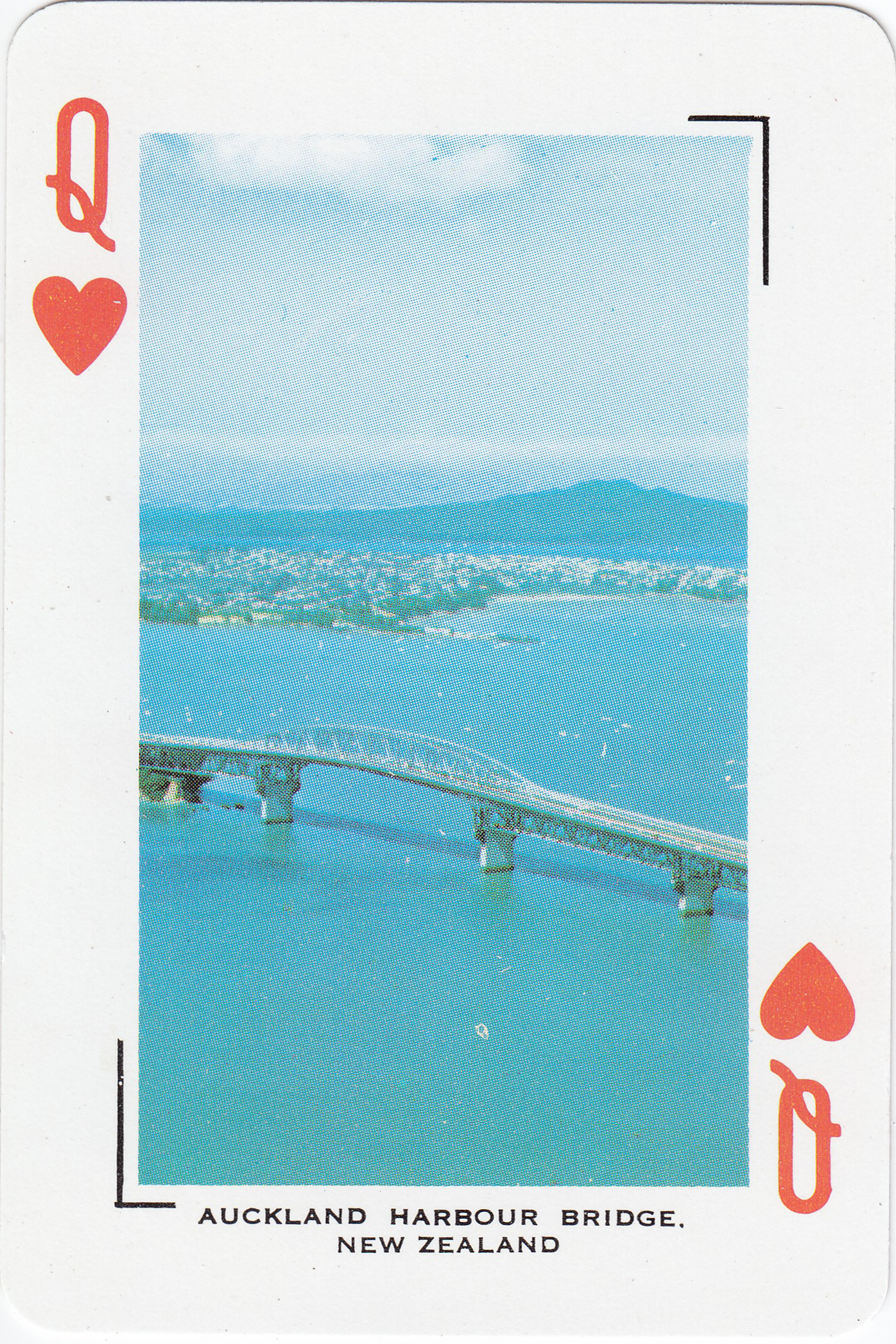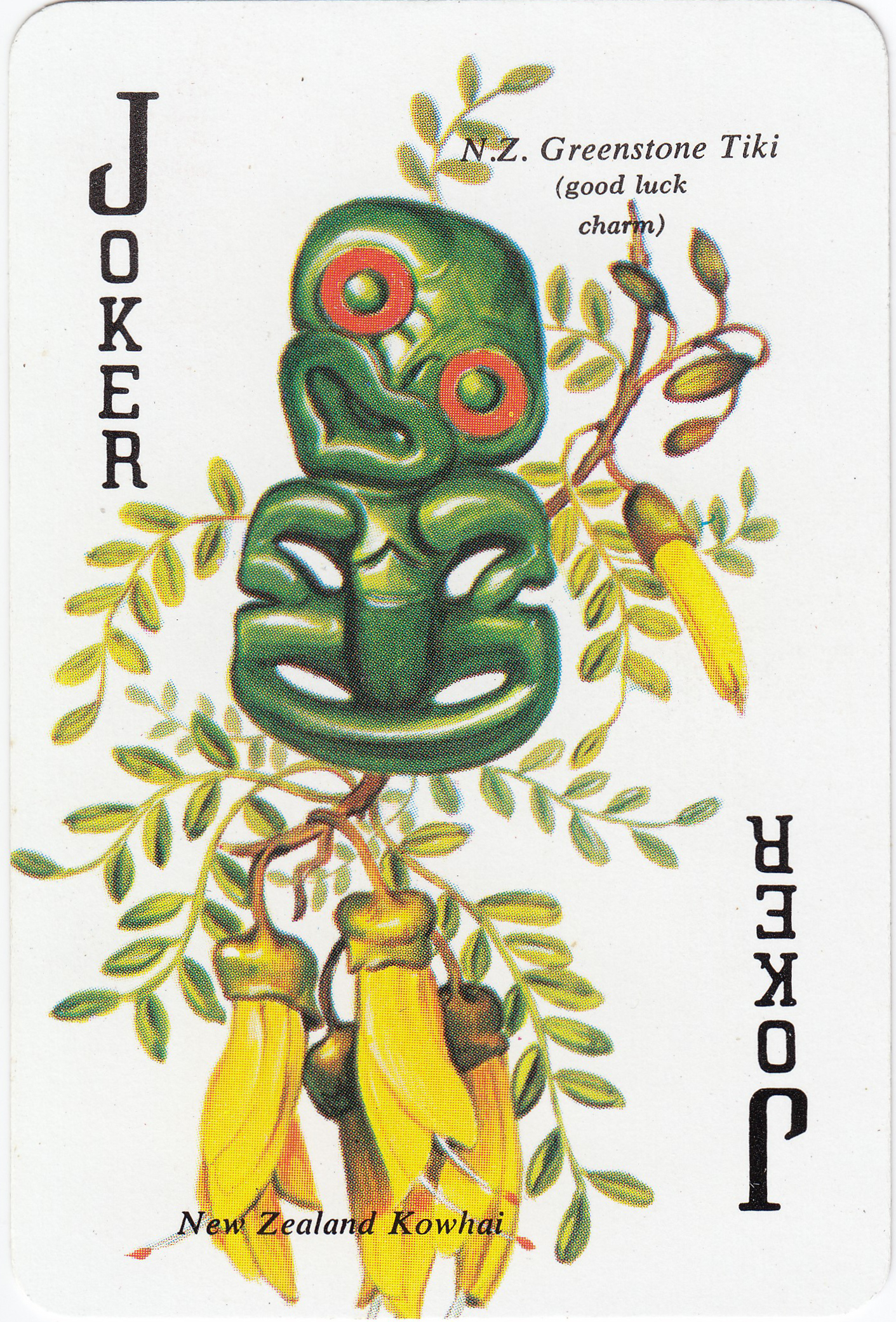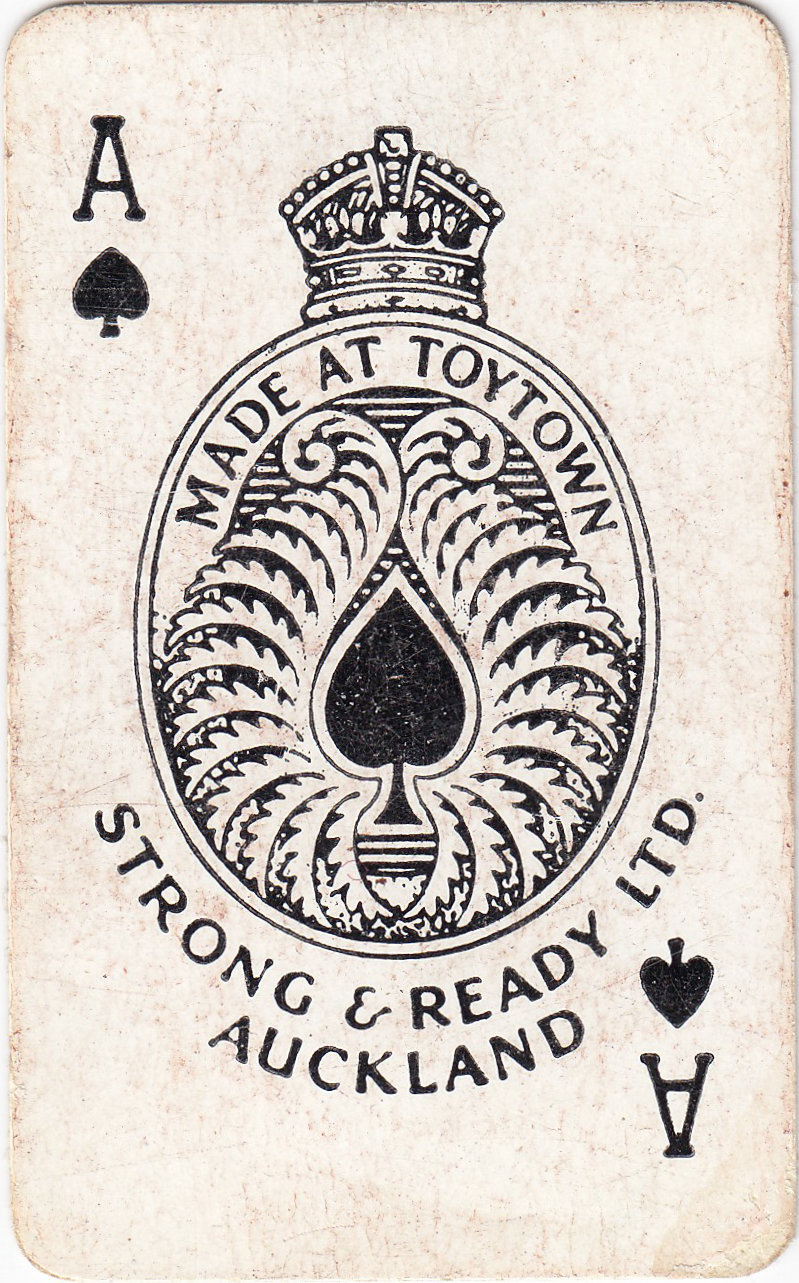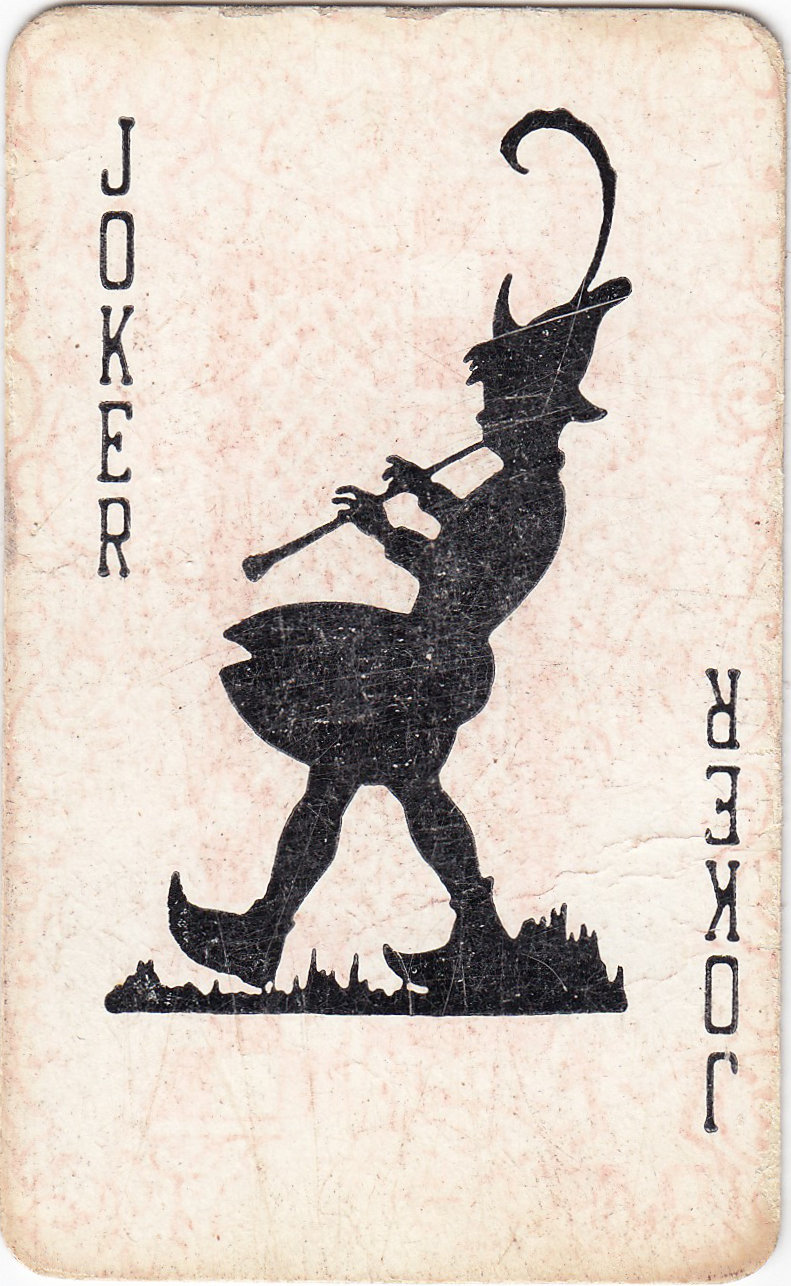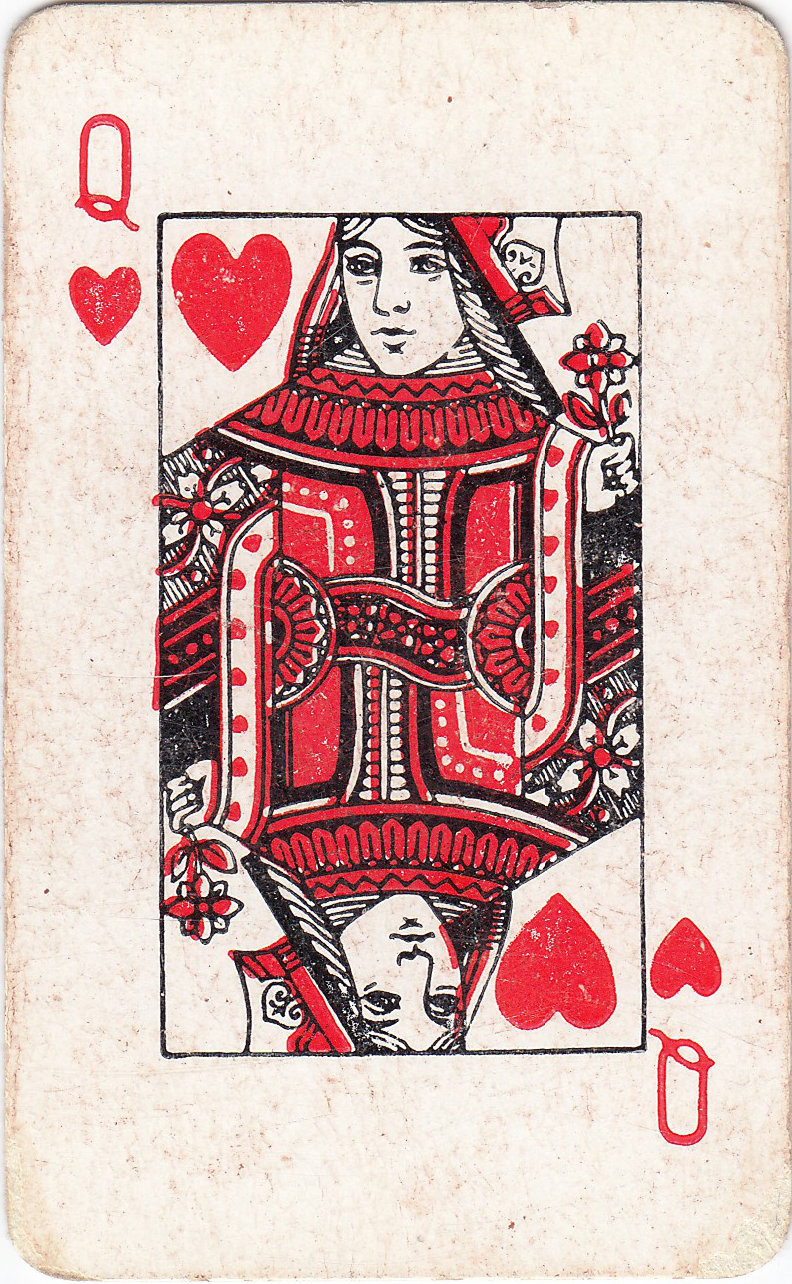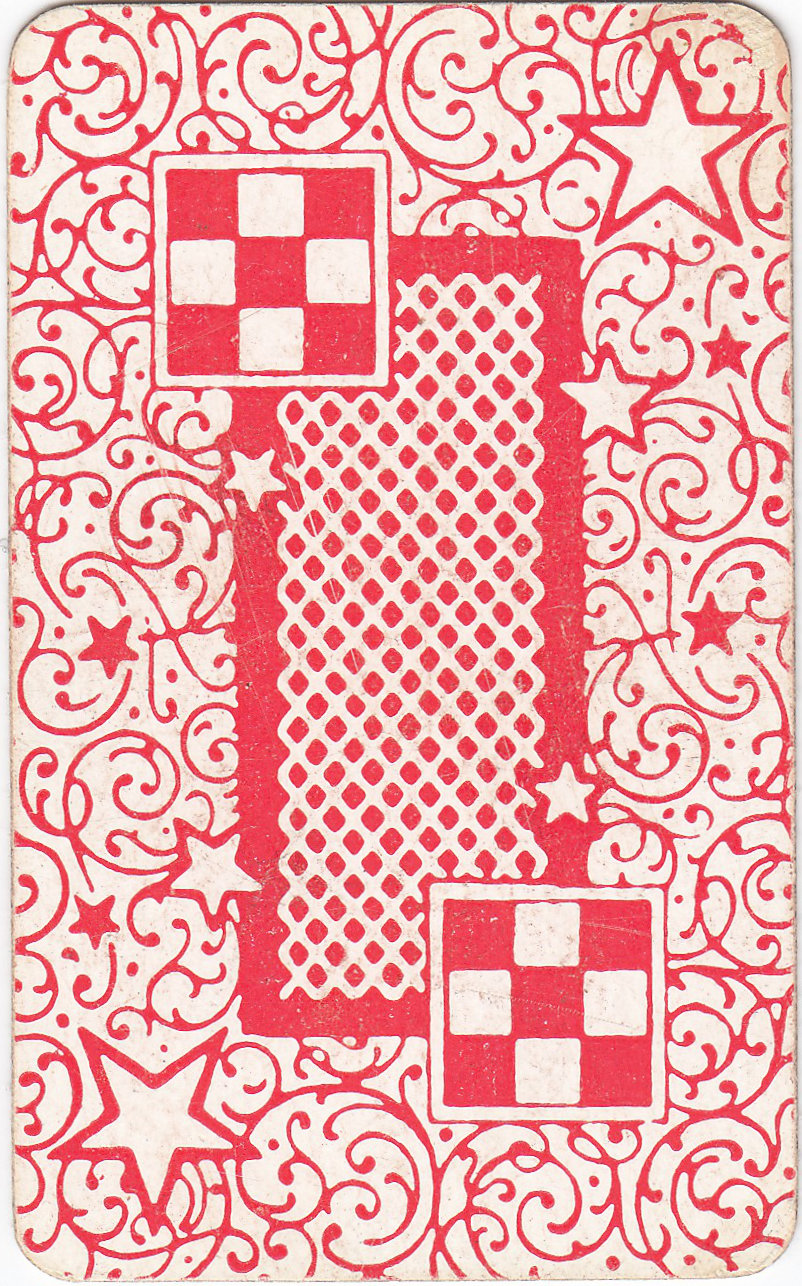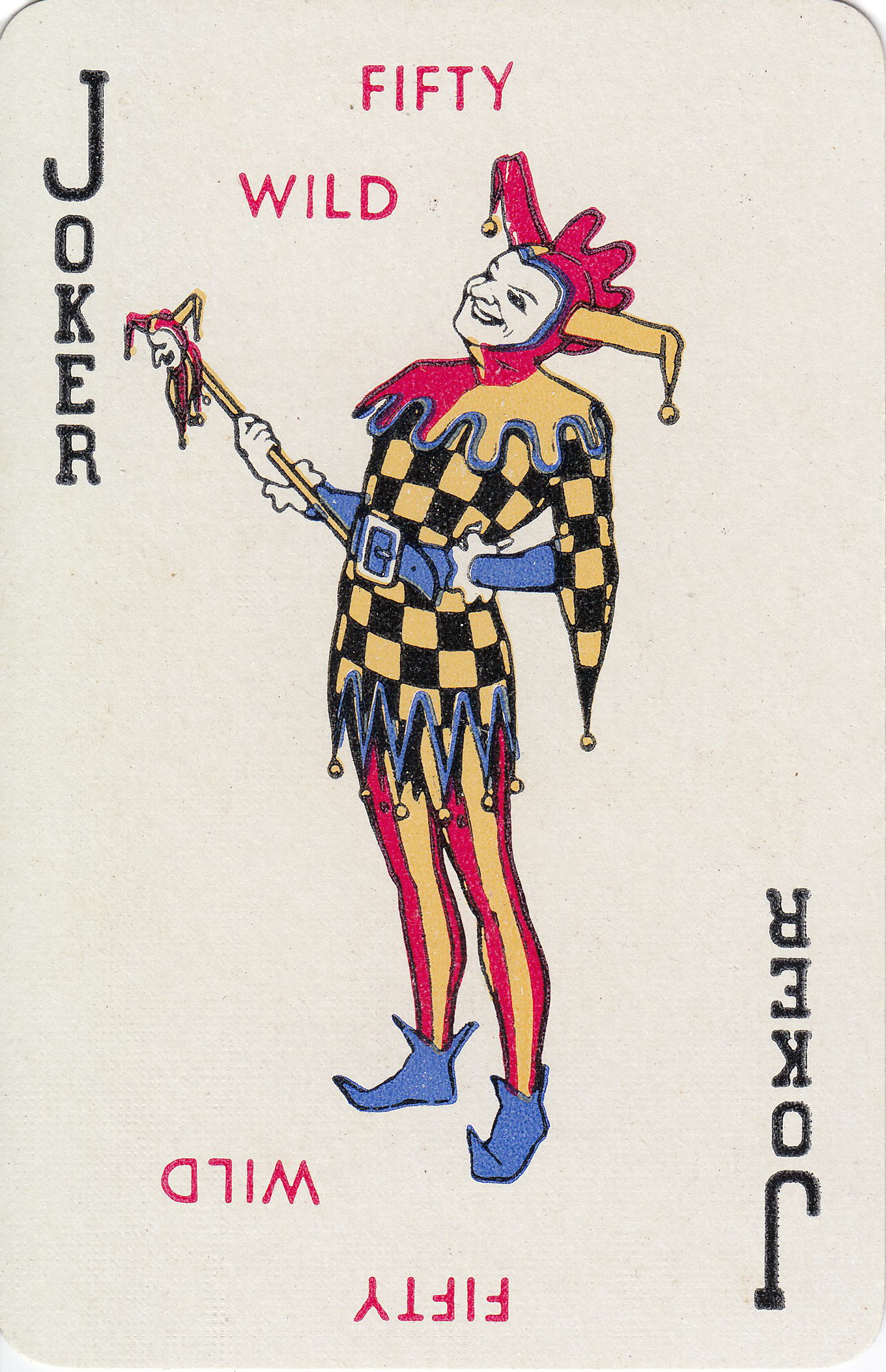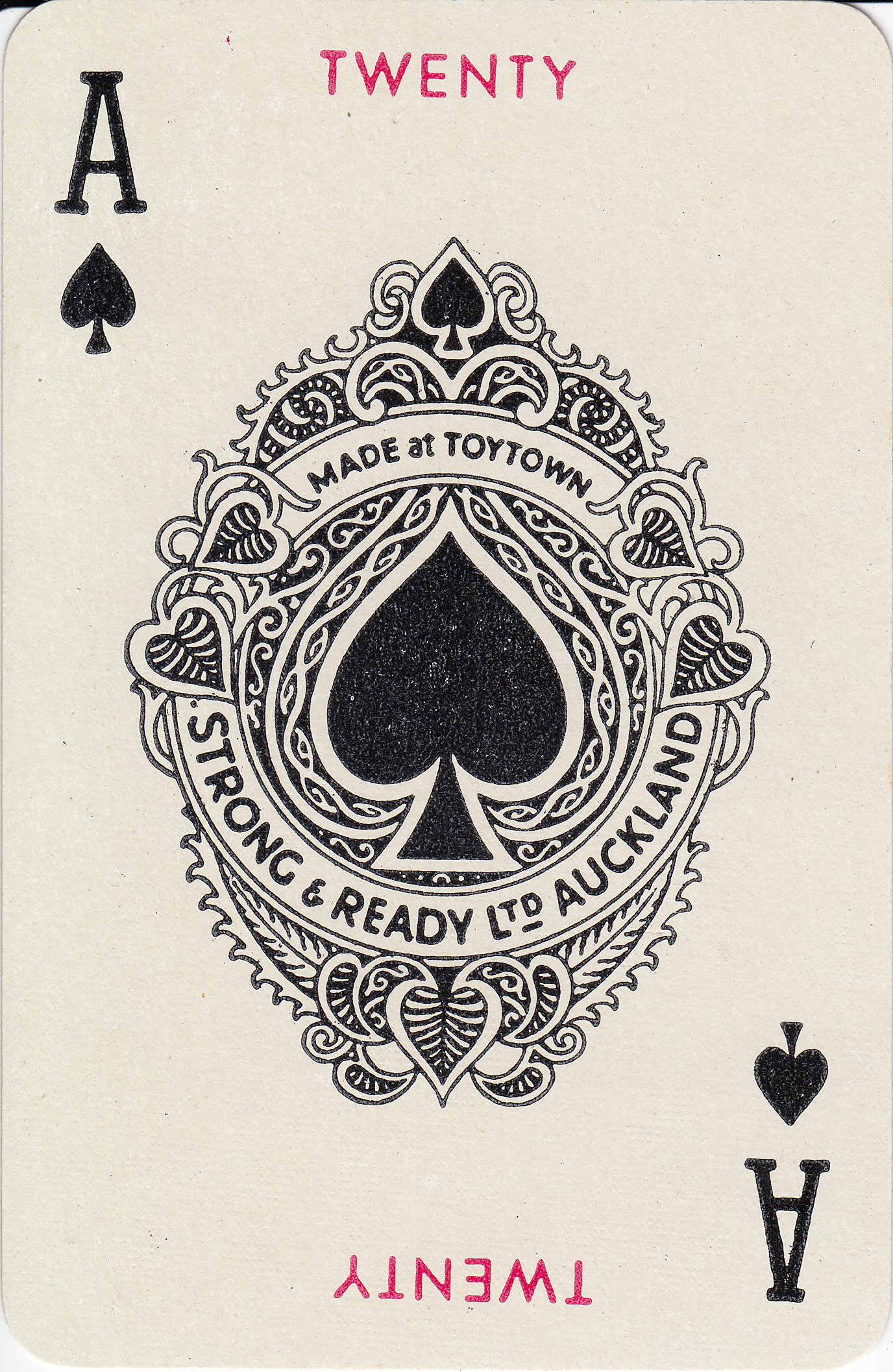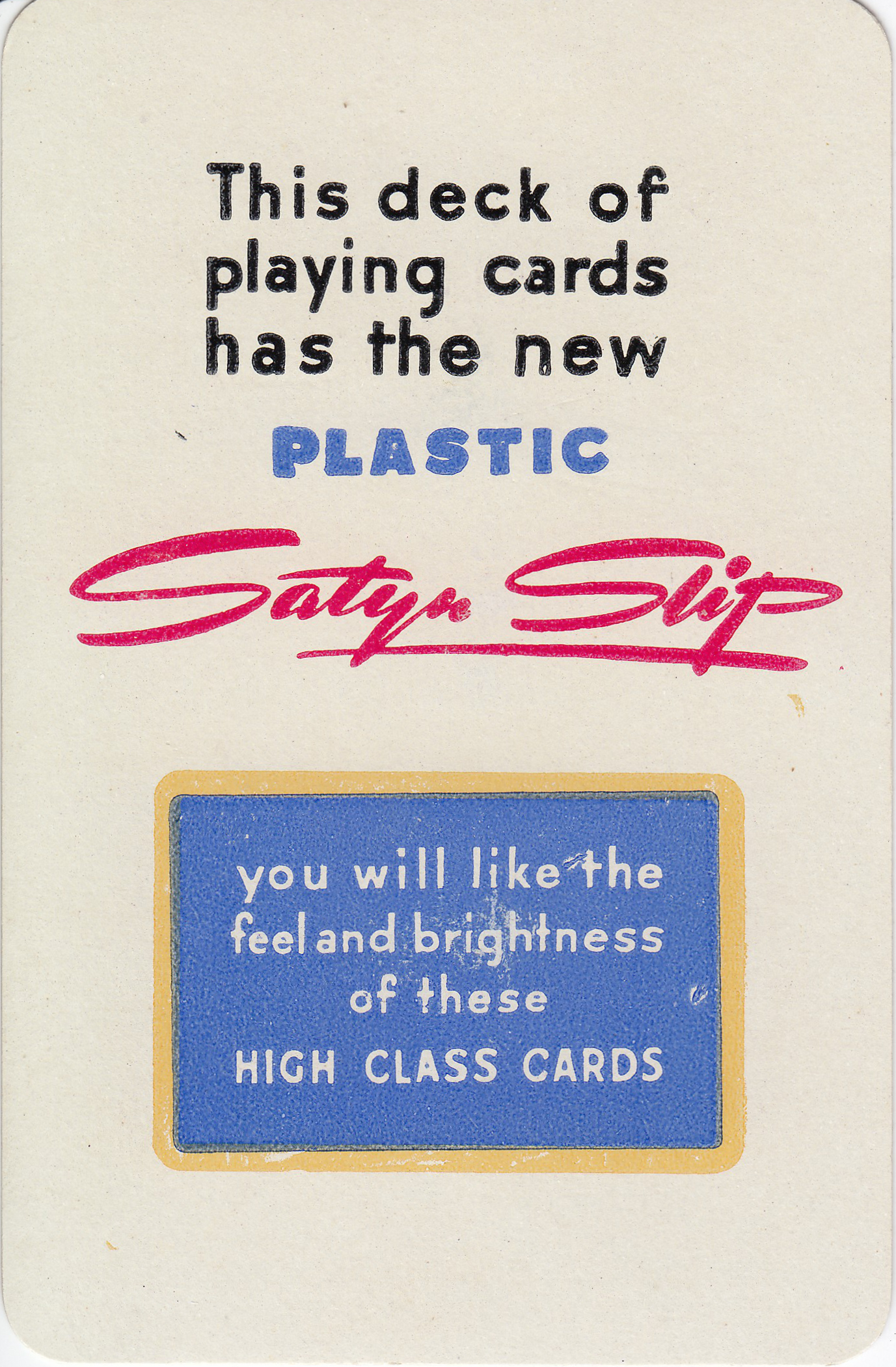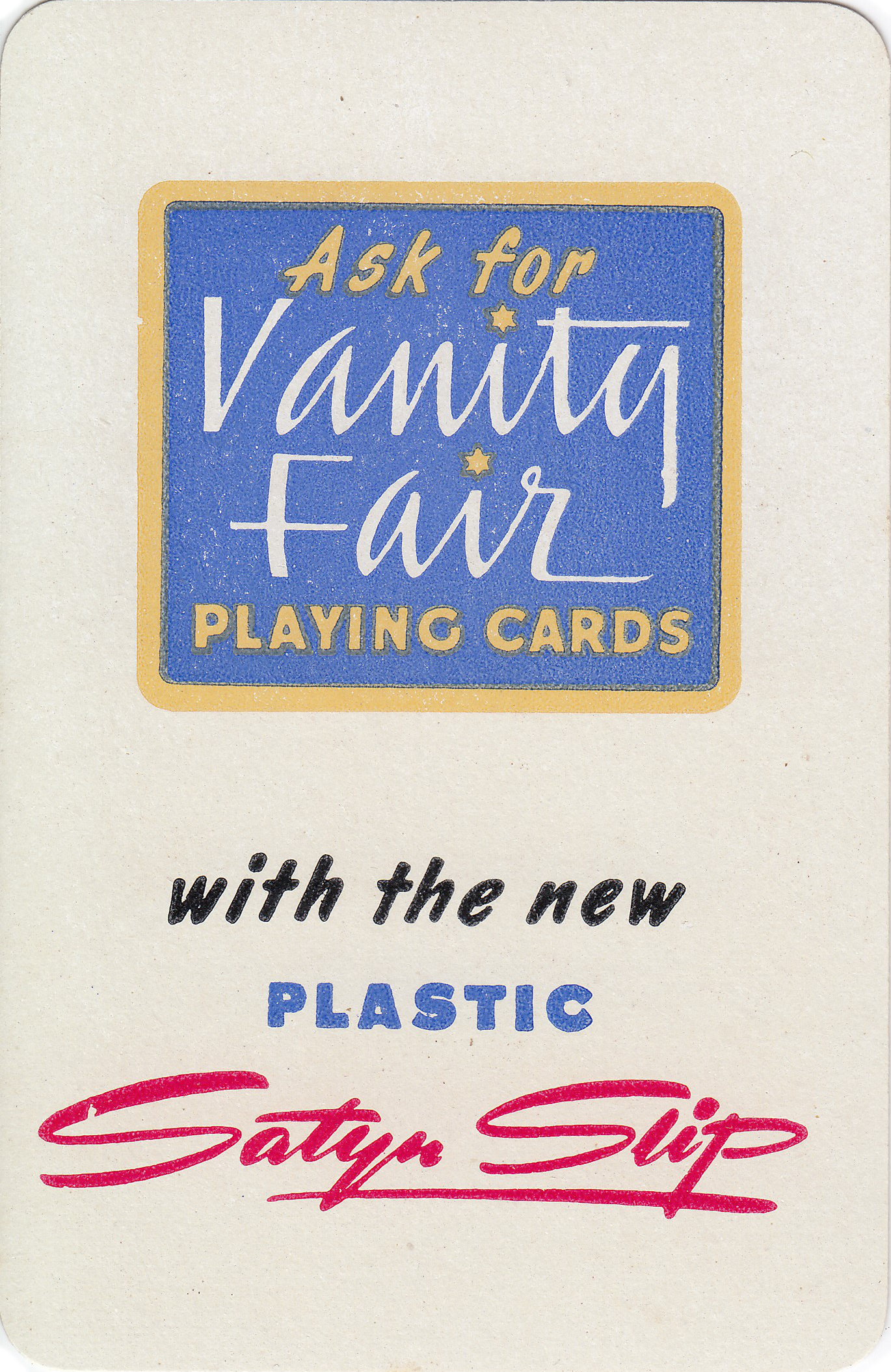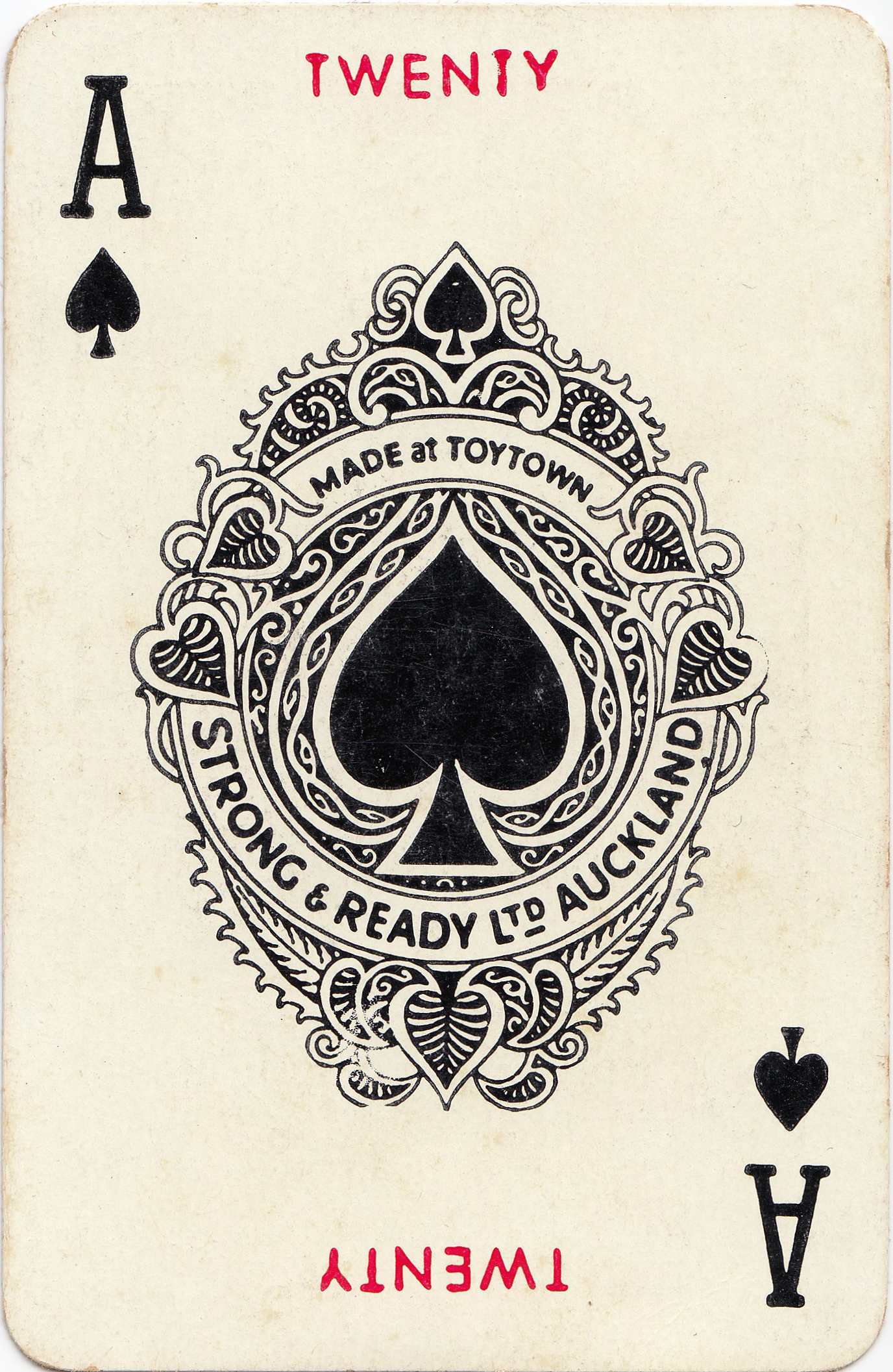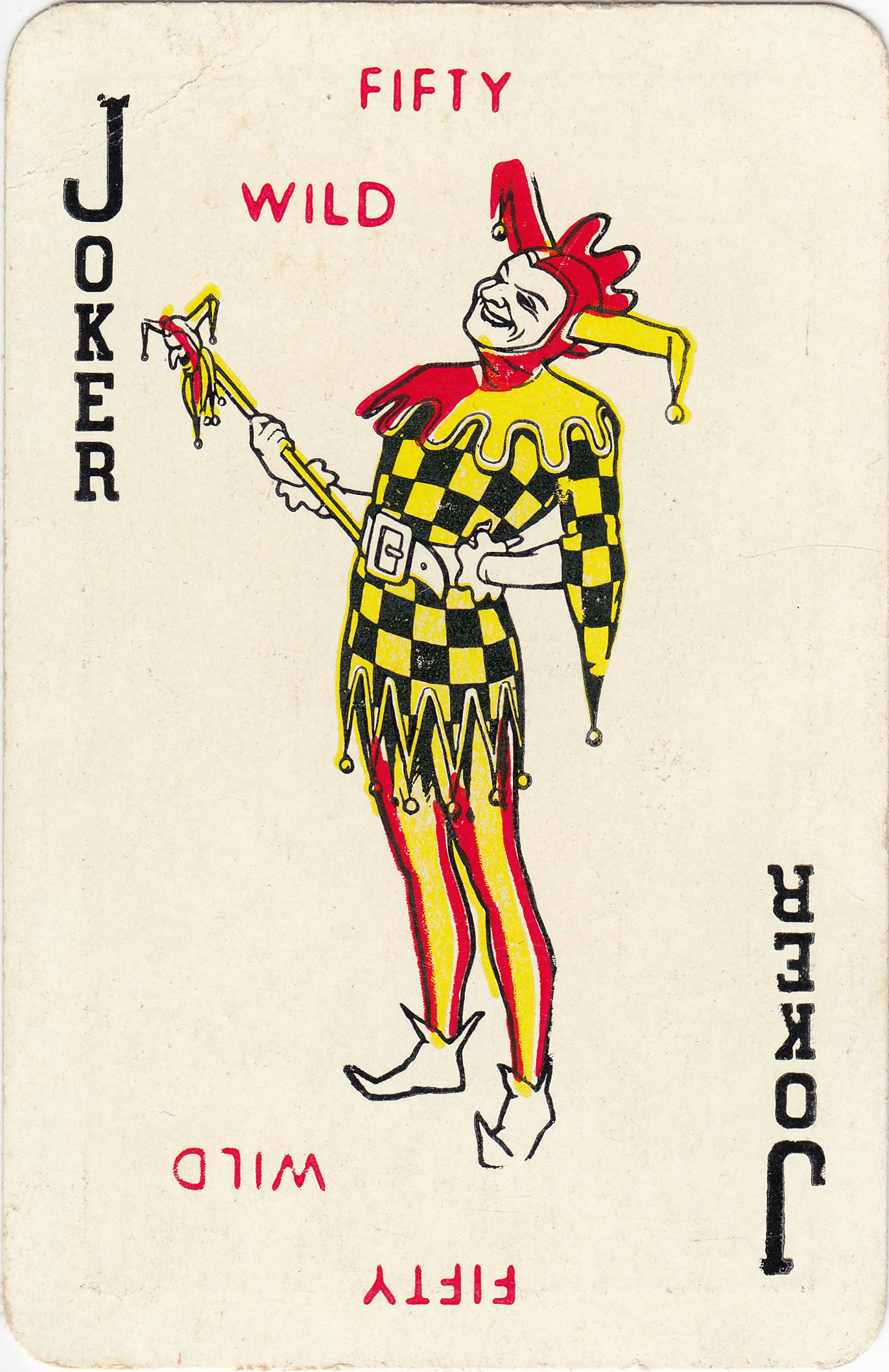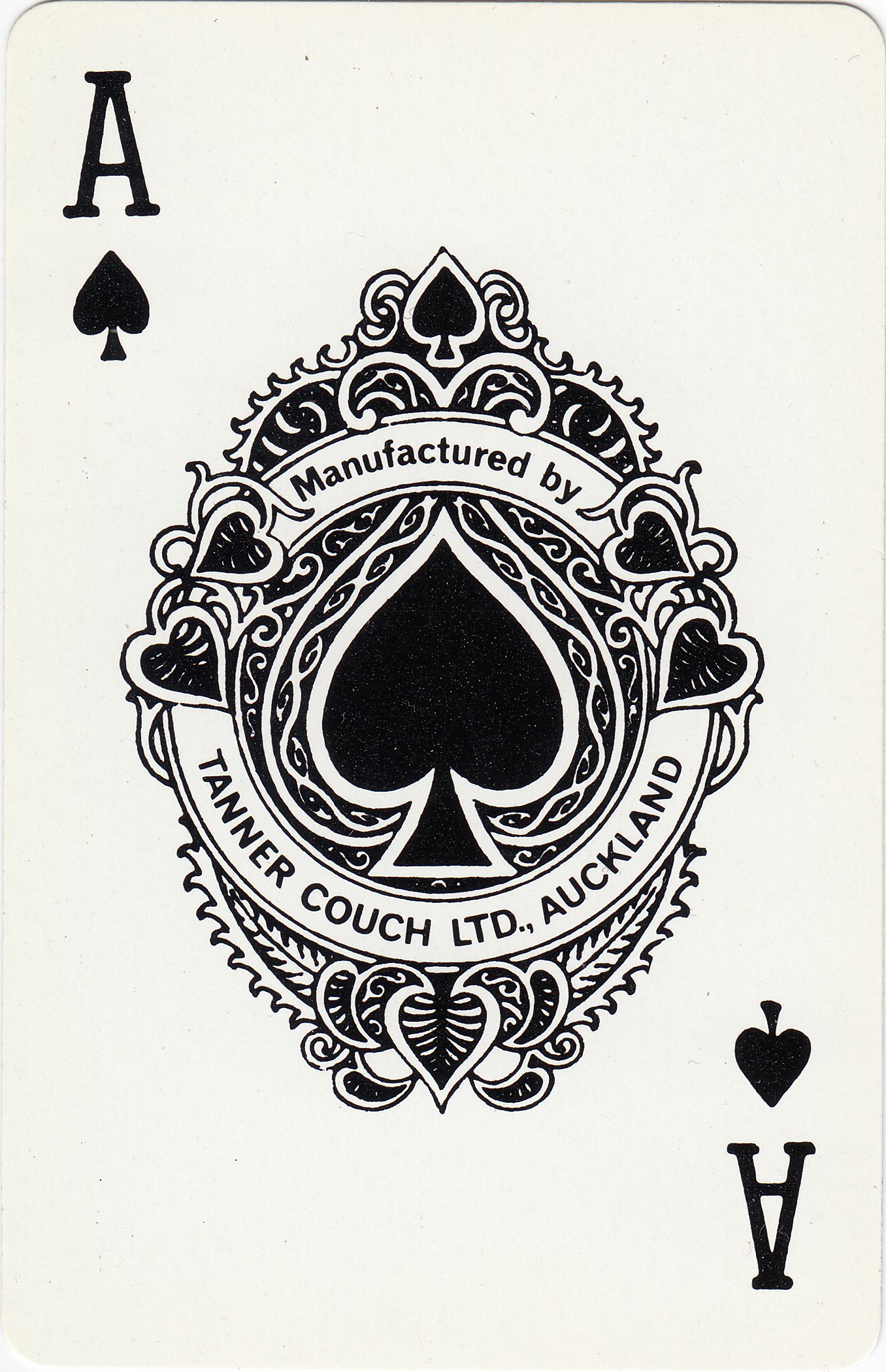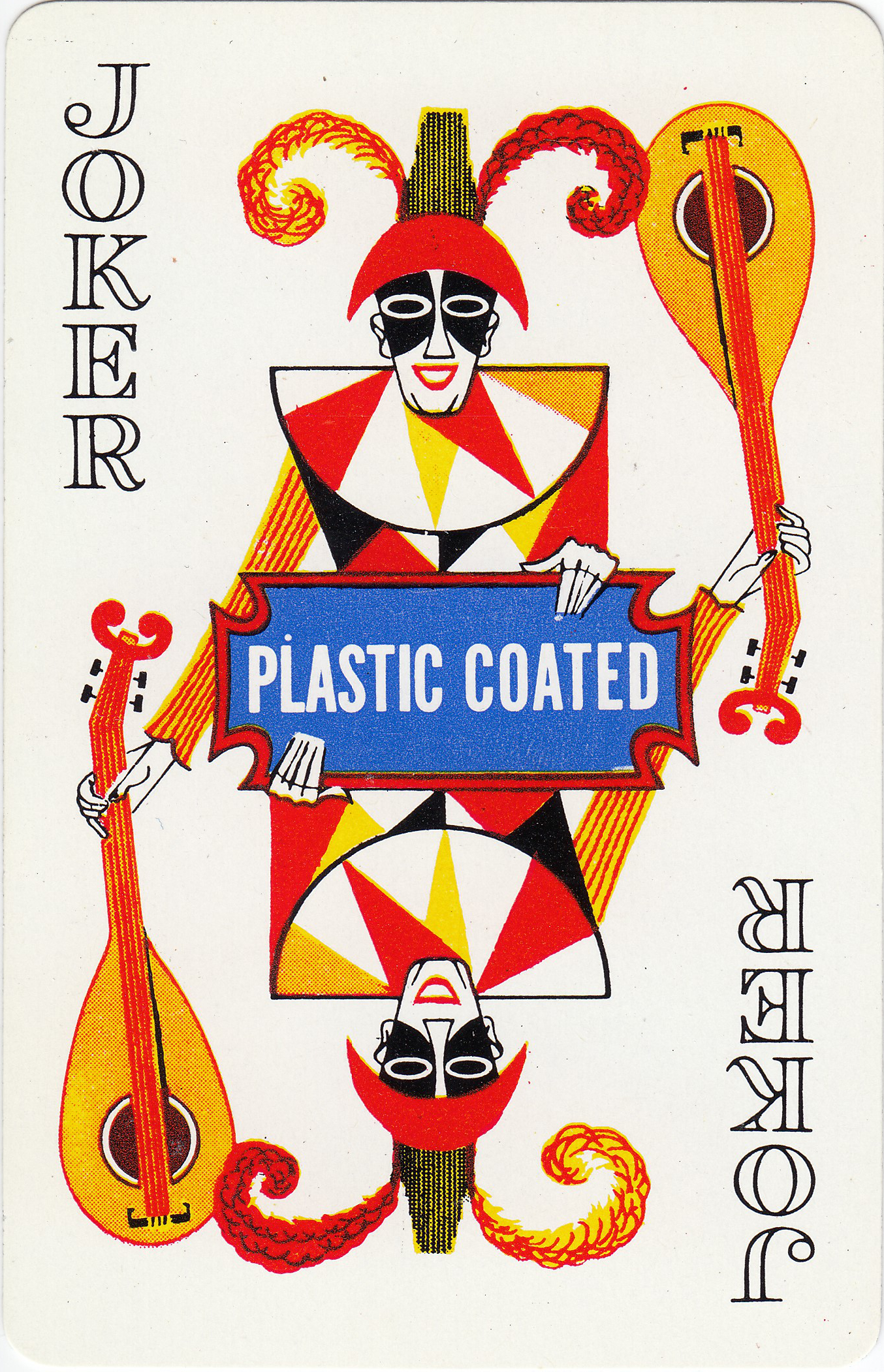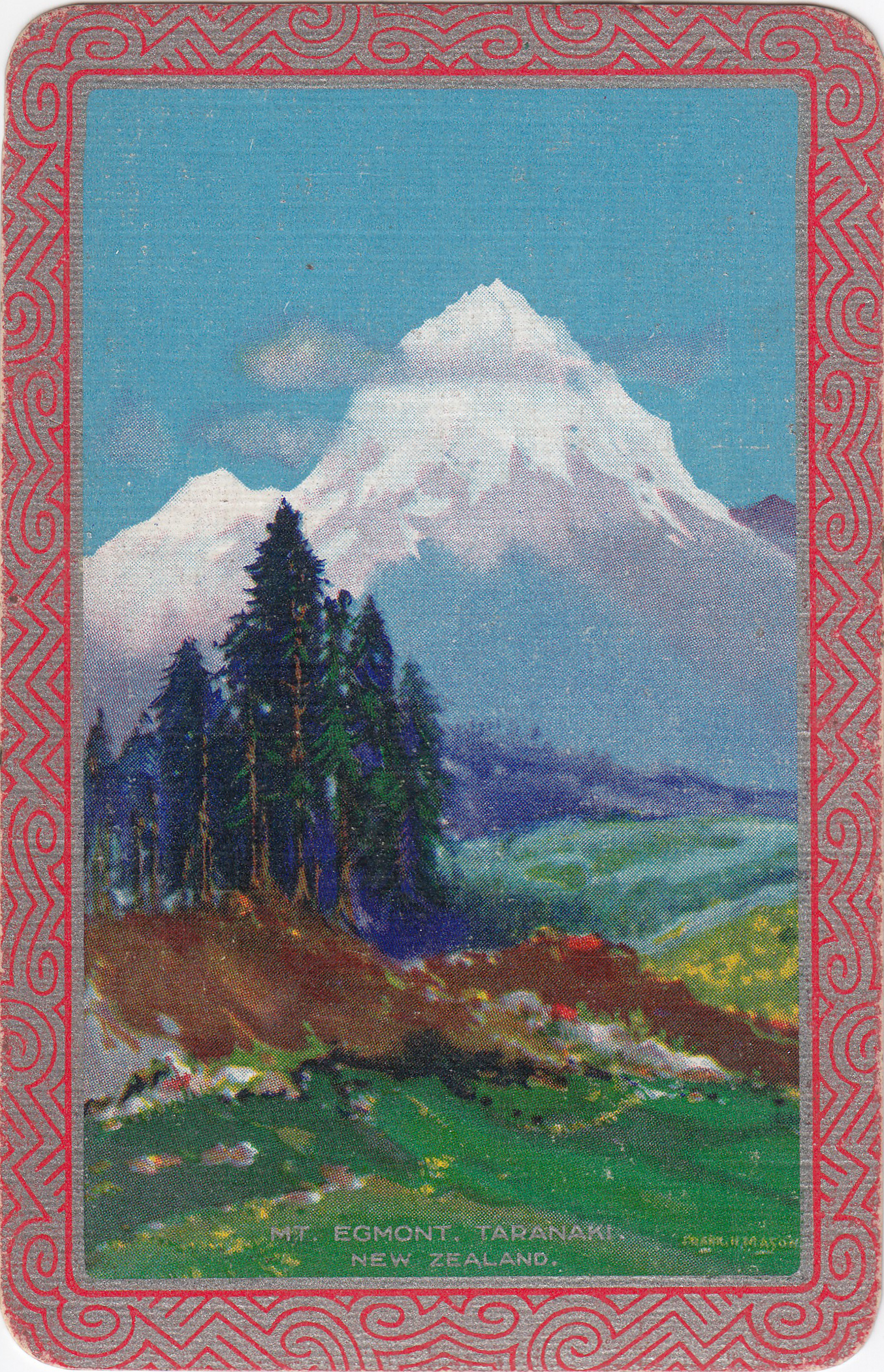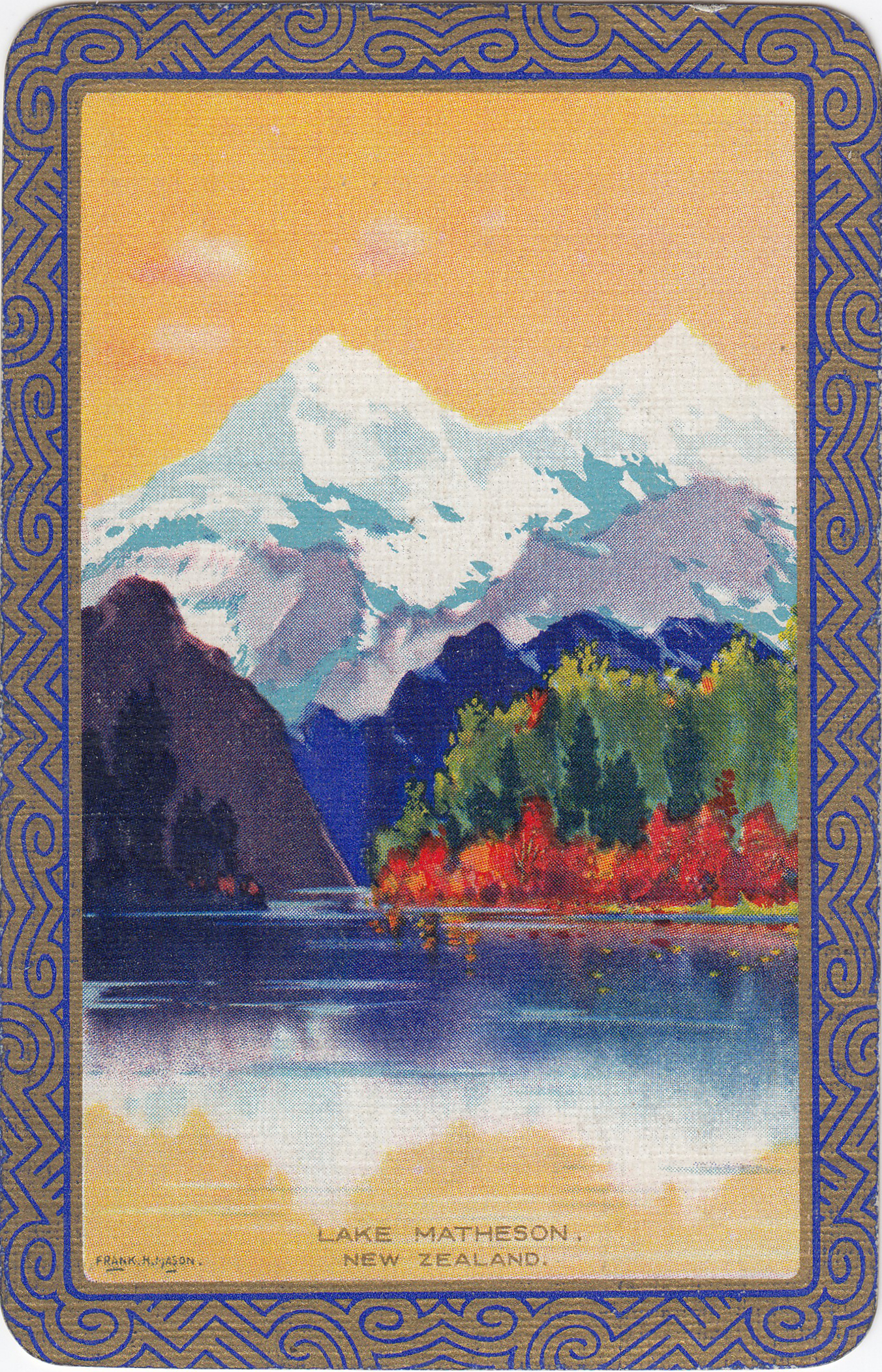Playing Cards in New Zealand
Last updated: .
Manufacturing of playing cards in New Zealand started in the 1880s. Despite this early start, there have not been many manufacturers of playing-cards.
The main “lines” of manufacturers described below are (or were):
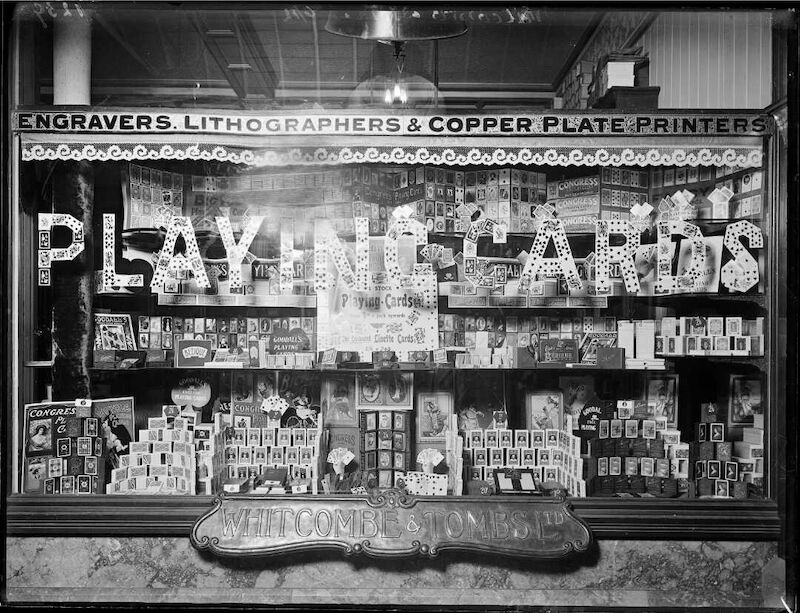
Window display at Whitcombe & Tombs (now Whitcoulls), Christchurch (1912). Mostly showing foreign-made cards: Goodall & Congress.
© Alexander Turnbull Library, used with permission: 1/1-003979-G
Tax Stamps
Playing cards imported into New Zealand were taxed from 1860, and stamped from 1880 until the tax ended in 1930.A All examples I have seen have been stamped on the .
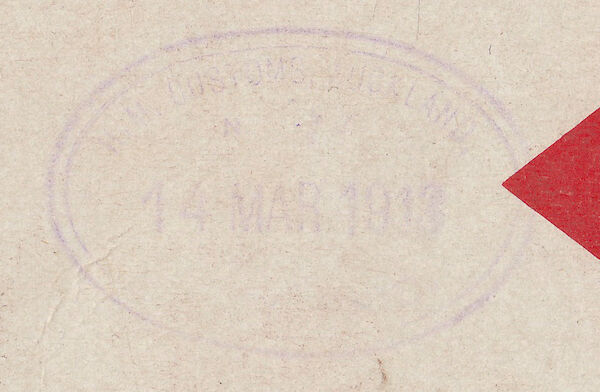
Tax stamp dated 14th March, 1913, on imported “1001 Aladdin” cards made by the National Card Co. of Indianapolis & New York.
© George Pollard, 🅭🅯🄏🄎
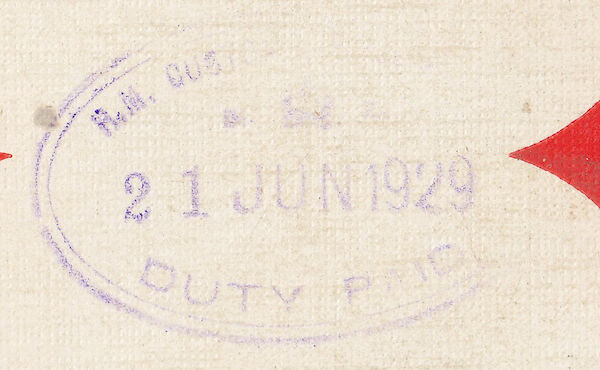
Tax stamp dated 21st June, 1929, on imported “Congress” brand cards made by the United States Playing Card Co. in Windsor, Ontario, Canada.
© George Pollard, 🅭🅯🄏🄎
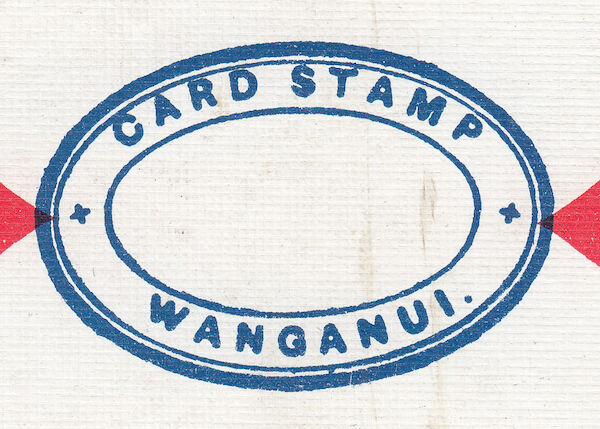
Undated tax stamp from A. D. Willis cards.
© George Pollard, 🅭🅯🄏🄎
Manufacturers
John Dickinson/Croxley
John Dickinson was a stationery company based in the United Kingdom that opened a New Zealand branch (“John Dickinson & Co.”) in 1920.B “Croxley” was their public brand of stationery products in New Zealand (the UK company originated in Croxley Green), under which they also published playing cards. As far as I know, the UK company never manufactured cards.
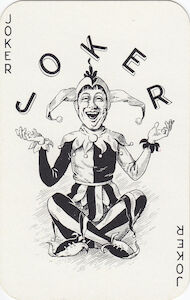
The Joker card (with the non-pictorial decks) remains unchanged throughout the years, aside from reproduction infelicities.
© George Pollard, 🅭🅯🄏🄎
In 1966 the UK company merged with E. S. & A. Robinson to form “Dickinson–Robinson Group”; the New Zealand firm was renamed to “The Dickinson Robinson Group” for a few months from 19 Dec 1968 – 26 Mar 1969, and then “DRG (New Zealand) Limited” until they were liquidated in 1994.C
Croxley remained around as its own company, but closed its last manufacturing plant in 2005.D The brand itself still exists, being owned by OfficeMax. However, it may soon disappear forever as OfficeMax closed all of its New Zealand stores in late 2020,A victim of Covid-19. and is now online-only. Current Croxley cards appear to be made in China and only retain the Ace as a nod to the Dickinson line.
The aces have changed over the years to match the name of the company; the later aces are often poor copies of the earlier ones, where detail has been lost.
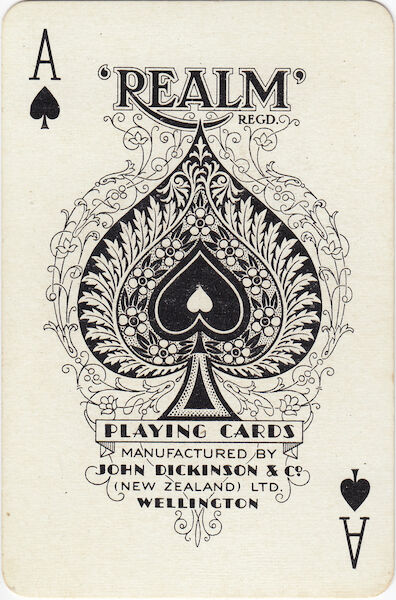
An early “John Dickinson & Co.” Realm Ace.
© George Pollard, 🅭🅯🄏🄎
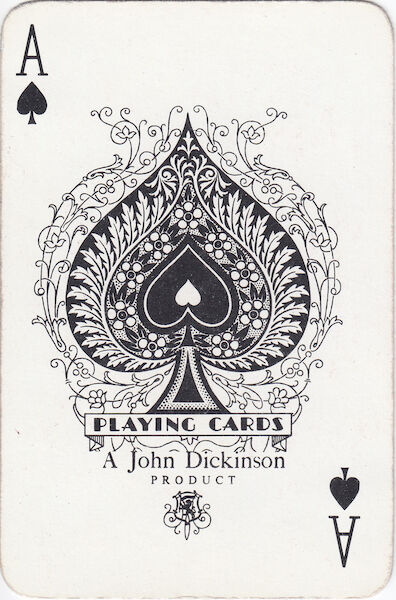
A “John Dickinson” Ace.
© George Pollard, 🅭🅯🄏🄎
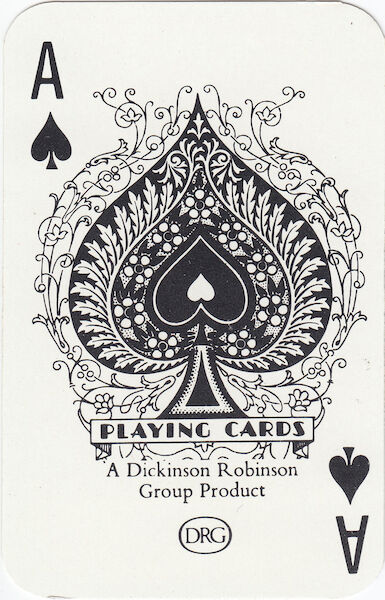
A “DRG” Ace.
© George Pollard, 🅭🅯🄏🄎
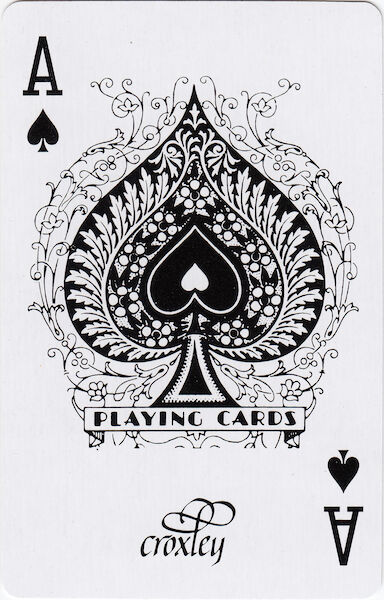
A “Croxley” Realm Ace, purchased 2021.
© George Pollard, 🅭🅯🄏🄎
The earlier (pre-DRG) cards are most easily identified by a index which has a turned-in tail, but this feature is lost in the DRG cards which shifted to a sans-serif index.
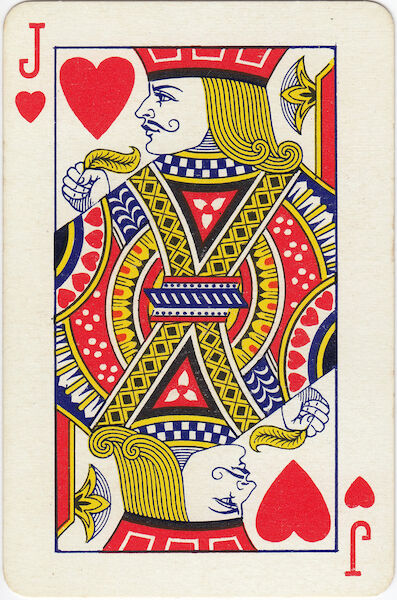
An early “John Dickinson & Co.” Realm Jack, printed in four colours.
© George Pollard, 🅭🅯🄏🄎
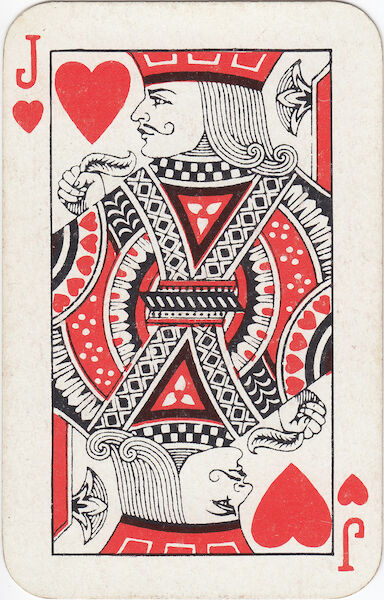
A “John Dickinson” Jack, printed in two colours.
© George Pollard, 🅭🅯🄏🄎
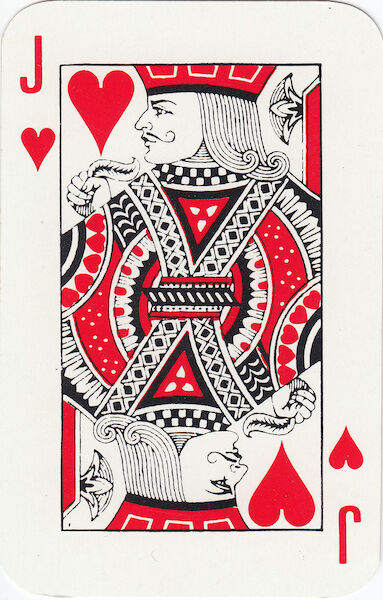
A “DRG” Jack, with portrait reduced in size and sans-serif indices. There is visible degradation of the linework.
© George Pollard, 🅭🅯🄏🄎
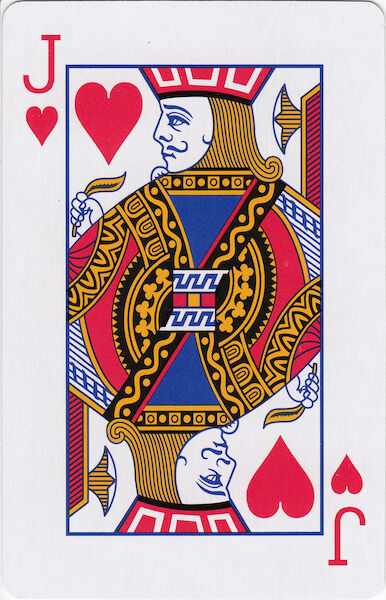
A “Croxley” Realm Jack, with courts no longer derived from the John Dickinson pattern.
© George Pollard, 🅭🅯🄏🄎
At one point, DRG produced Waddington’s cards in New Zealand, under licence. Note the text on the Ace and the small ® on the joker.
© George Pollard, 🅭🅯🄏🄎
Cards from a DRG-produced Canasta set. Note that the Joker is the same as Strong & Ready’s. It is possible DRG took over this design from them (the rest of the deck is standard DRG).
© George Pollard, 🅭🅯🄏🄎
The curled- index on the pre-DRG cards is useful in identifying tourist pictorial decks where the card images are replaced by photographs of scenic locations, so that the Ace gives no identifying information. The following cards are from a deck produced before 1958:
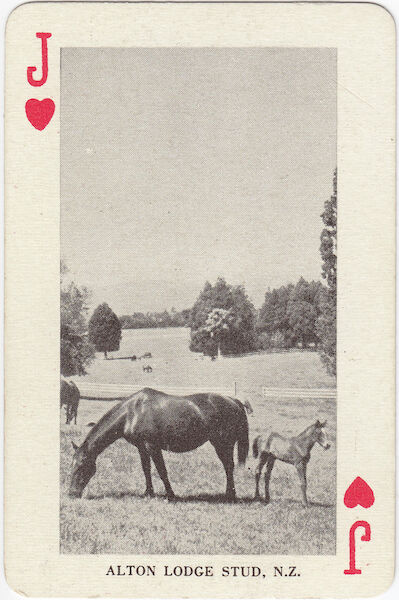
A pictorial card with the characteristic index.
© George Pollard, 🅭🅯🄏🄎
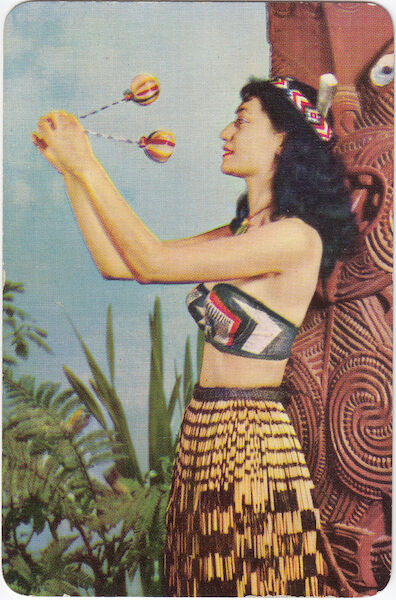
The back of the card deck, showing a woman performing with poi.
© George Pollard, 🅭🅯🄏🄎
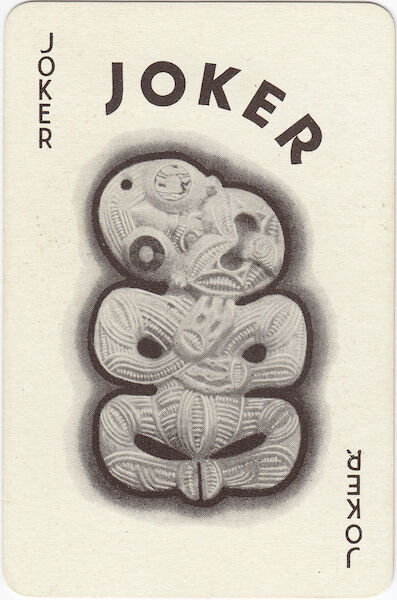
The joker of the deck, featuring a hei-tiki. Note that this rather offensively reduces a taonga to the status of a jester.
© George Pollard, 🅭🅯🄏🄎
The Dickinson and DRG cards are probably most often found with backs designed for tourists, depicting locations around New Zealand, or New Zealand wildlife:
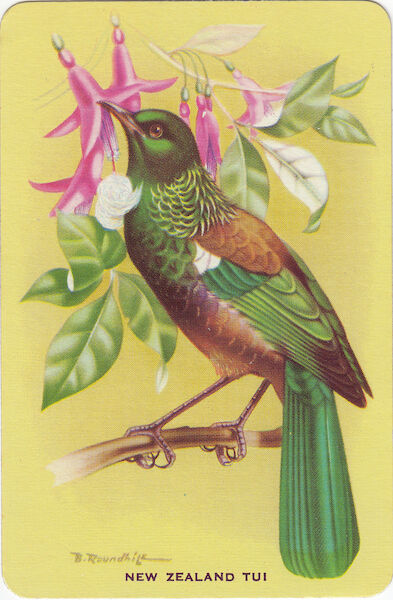
Croxley/John Dickinson & Co. card back showing a Tūī.
© George Pollard, 🅭🅯🄏🄎
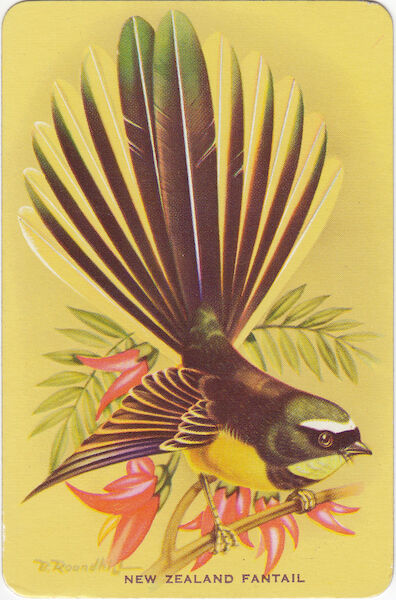
Croxley/John Dickinson & Co. card back showing a Fantail.
© George Pollard, 🅭🅯🄏🄎
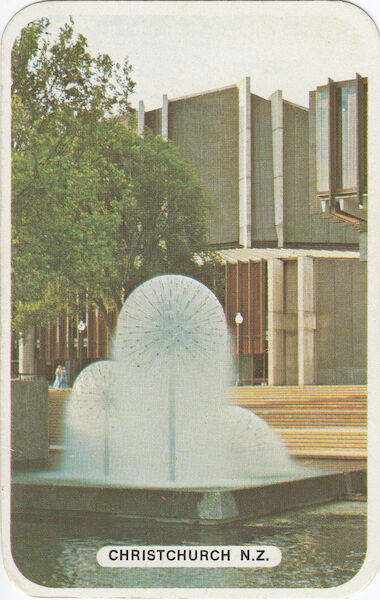
Croxley/John Dickinson card back showing the Ferrier fountain.
© George Pollard, 🅭🅯🄏🄎
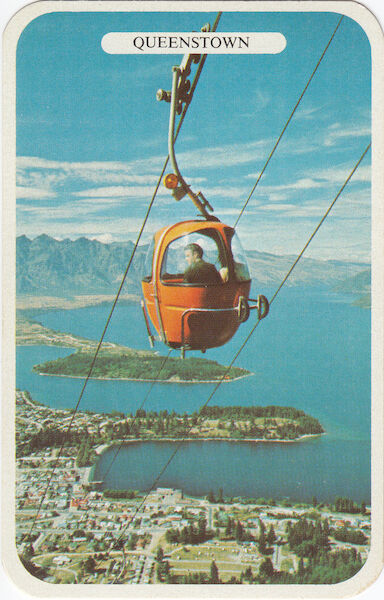
John Dickinson card back showing the Queenstown gondola (the first in the southern hemisphere).
© George Pollard, 🅭🅯🄏🄎
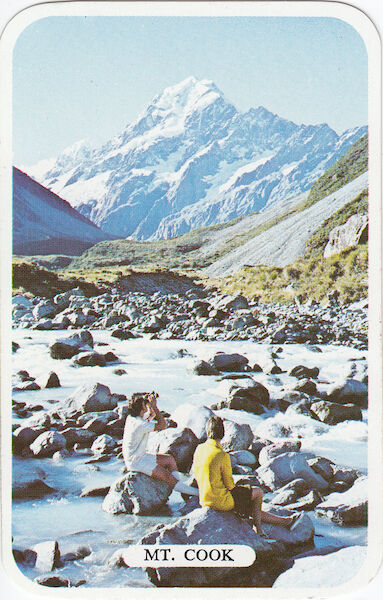
Croxley/DRG card back showing Aoraki / Mount Cook.
© George Pollard, 🅭🅯🄏🄎
A. D. Willis/Weeks Ltd./United Empire Box/Amcor
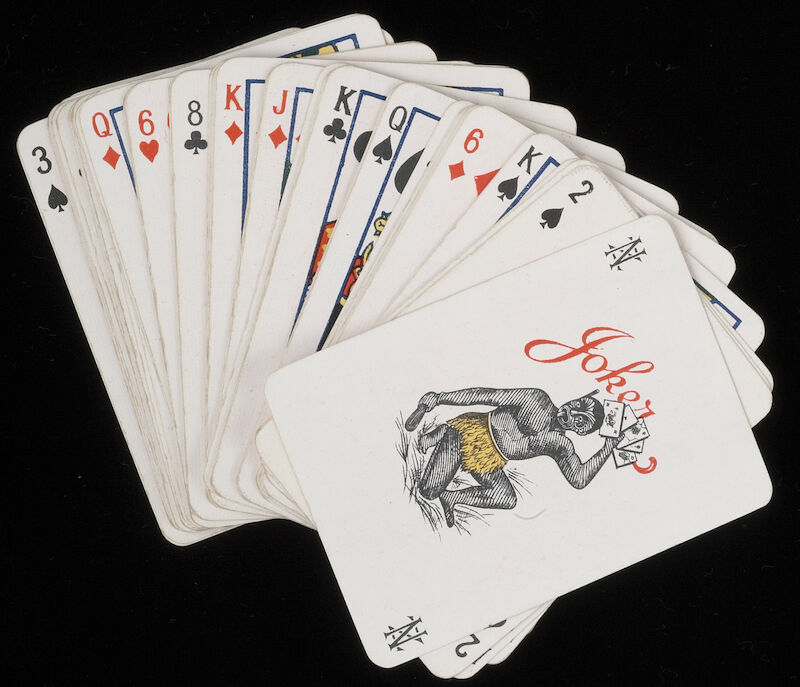
Playing cards, circa 1920, Whanganui, by A. D. Willis Ltd.
© Museum of Te Papa Tongarewa: GH007256
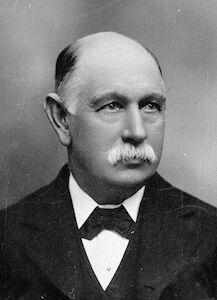
Archibald Dudingston Willis, circa 1902.
Archibald Dudingston Willis (1842–1908)E was a very early manufacturer of playing cards in New Zealand who operated in Wanganui from the 1880s. In 1951 the company was sold to Weeks Ltd, which kept A. D. Willis as a subsidiary, and the business was sold in turn to United Empire Box (UEB) around 1964.FSome sources (including E) state 1949 here, but 1951 is corroborated by newspaper reports.G In the late 1980s the design was taken over by Kiwi Packaging (part of Amcor). This line of designs now appears to be out-of-print, as Amcor no longer manufacture playing cards.
Cards in the original A. D. Willis style, c. 1910.
© George Pollard, 🅭🅯🄏🄎
Cards in the later Willis style, this deck possibly produced by A. D. Willis. The deck is a 500 deck and includes s, s, and s. An unusual detail is that the tail of the index is truncated on the red cards.
© George Pollard, 🅭🅯🄏🄎
“Hostess” Canasta cards in the Willis style, as produced by Weeks Ltd. This deck retains the short tail on the red index.
© George Pollard, 🅭🅯🄏🄎
“Strand” Cards in the Willis style, this deck probably made by UEB. The designs are redrawn from the original Willis design. This deck is unusual in that the paper is uncoated and the cards feel like plain cardboard, despite the box promising a “Linen Finish”.
© George Pollard, 🅭🅯🄏🄎
“Royal” Cards in the Willis style, made by UEB in four colours. “Kiwi” on the box describes the card backs.
© George Pollard, 🅭🅯🄏🄎
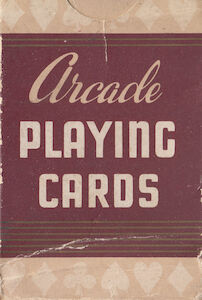
An earlier “Arcade” box as produced by Weeks Ltd.
© George Pollard, 🅭🅯🄏🄎
“Arcade” Cards in the Willis style, produced by Amcor Cartons.
© George Pollard, 🅭🅯🄏🄎
UEB also produced pictorial souvenir decks, such as the one below.
Back and cards from a UEB tourist deck.
© George Pollard, 🅭🅯🄏🄎
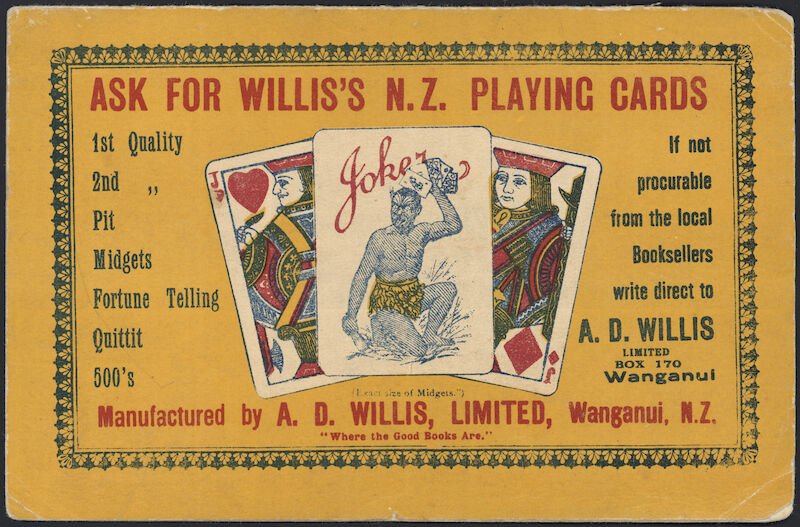
An advertisement for A. D. Willis’s playing cards.
Strong & Ready/Tanner Couch
Strong & Ready Ltd. was registered from 1948–1974.
Strong & Ready “Elfin” patience-sized playing cards.
© George Pollard, 🅭🅯🄏🄎
Strong & Ready cards from a Canasta deck, 1953.
© George Pollard, 🅭🅯🄏🄎
Foreign manufacturers
In addition to cards manufactured in New Zealand, cards featuring New Zealand scenes were manufactured in other countries, such as the United Kingdom.
Two card backs produced by Goodall under their “Boudoir” brand, with art by Frank H. Mason. The left features Mount Taranaki / Egmont, and the right Lake Matheson.
© George Pollard, 🅭🅯🄏🄎
References
Endebrock, Peter (). ‘Playing-Card Tax Stamps from New Zealand’ [archived]. On the website Peter Endebrock’s Playing-card Pages (accessed ).
Croxley Stationery (). Croxley Stationery. Croxley Stationery.
New Zealand Companies Office (). ‘Companies Register: DRNZ Limited’ [archived]. New Zealand Companies Office.
1 NEWS (). ‘Croxley confirms factory closure, 100 job losses’ [archived]. 1 NEWS: New Zealand.
Goodall, Michael (). ‘A. D. Willis — An Antipodean Cardmaker’. Journal of the International Playing-Card Society vol. 16 (2), : pages 41–43. Edited by Trevor Denning.
Black, Sandi (). ‘Museum Notebook: Whanganui philanthropist also an astute businessman’ [archived]. Whanganui Chronicle, .
Anonymous (). ‘Company News — Week’s Limited’s Accounts: A Year of Expansion’. The Press vol. 87 (26,523), : page 9. Christchurch, New Zealand.
